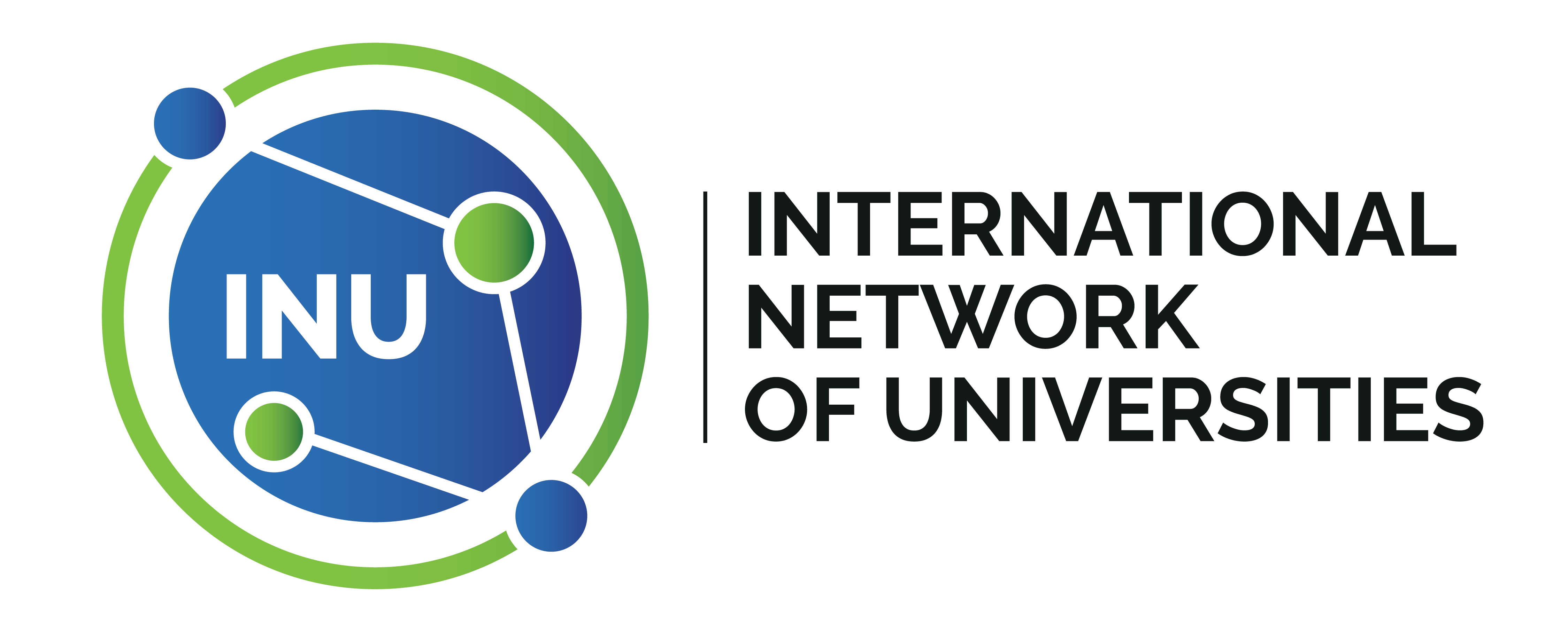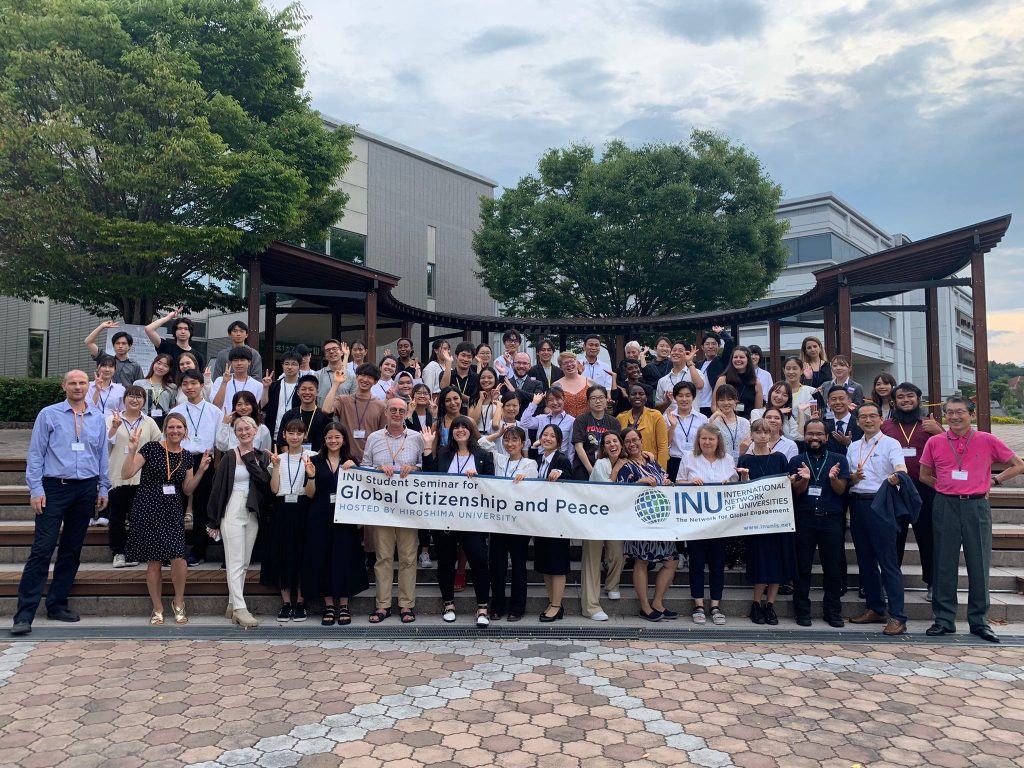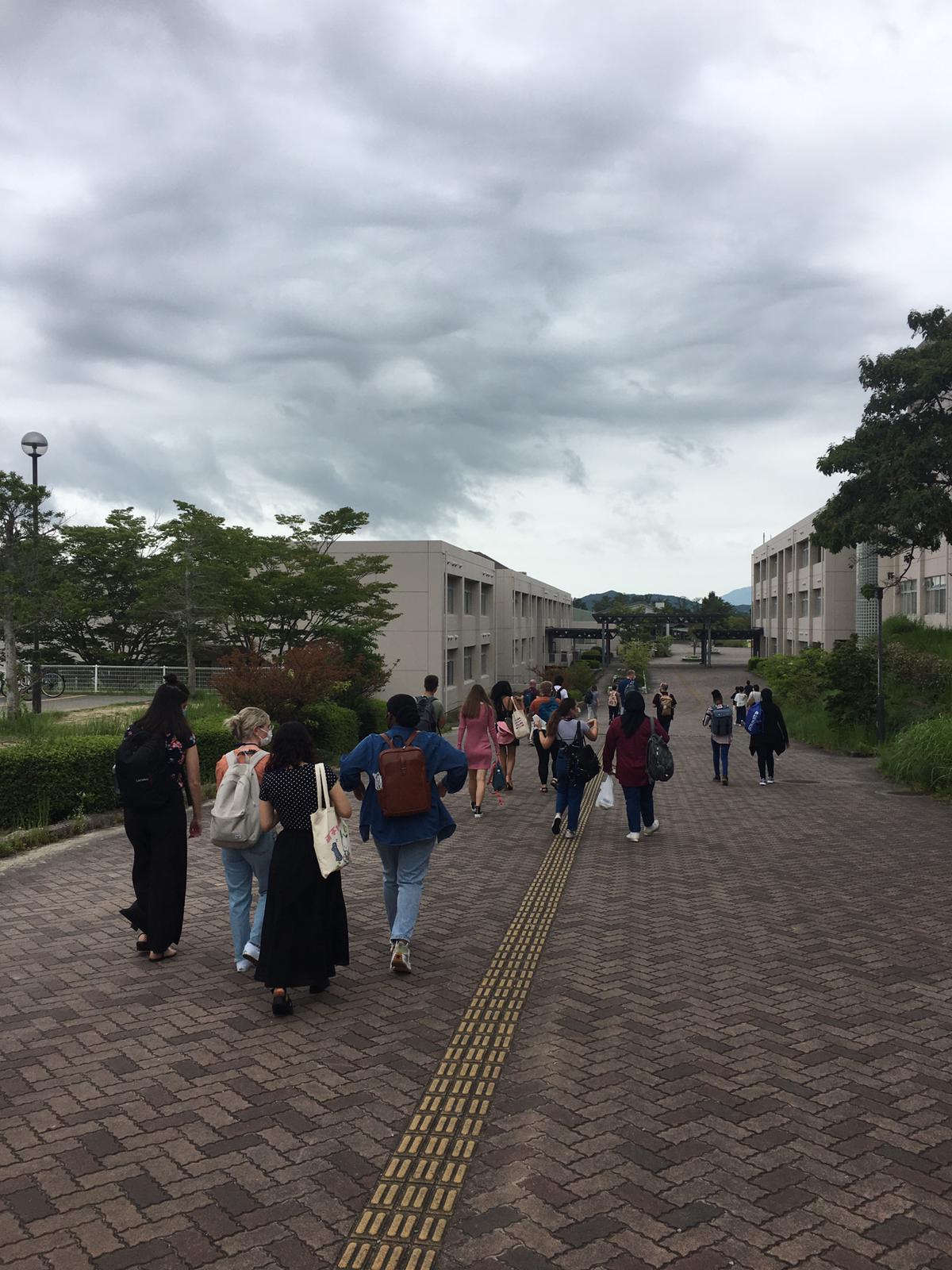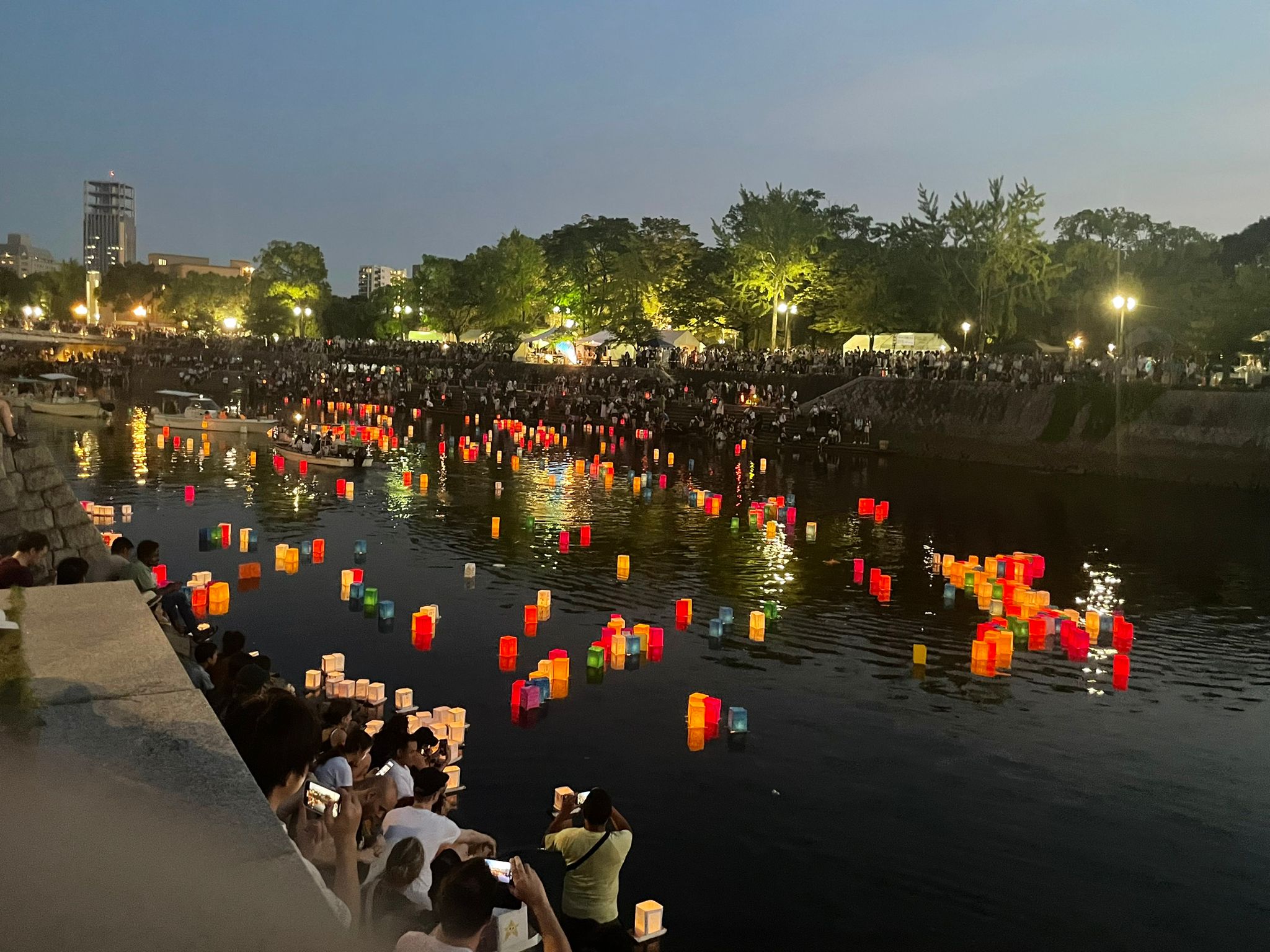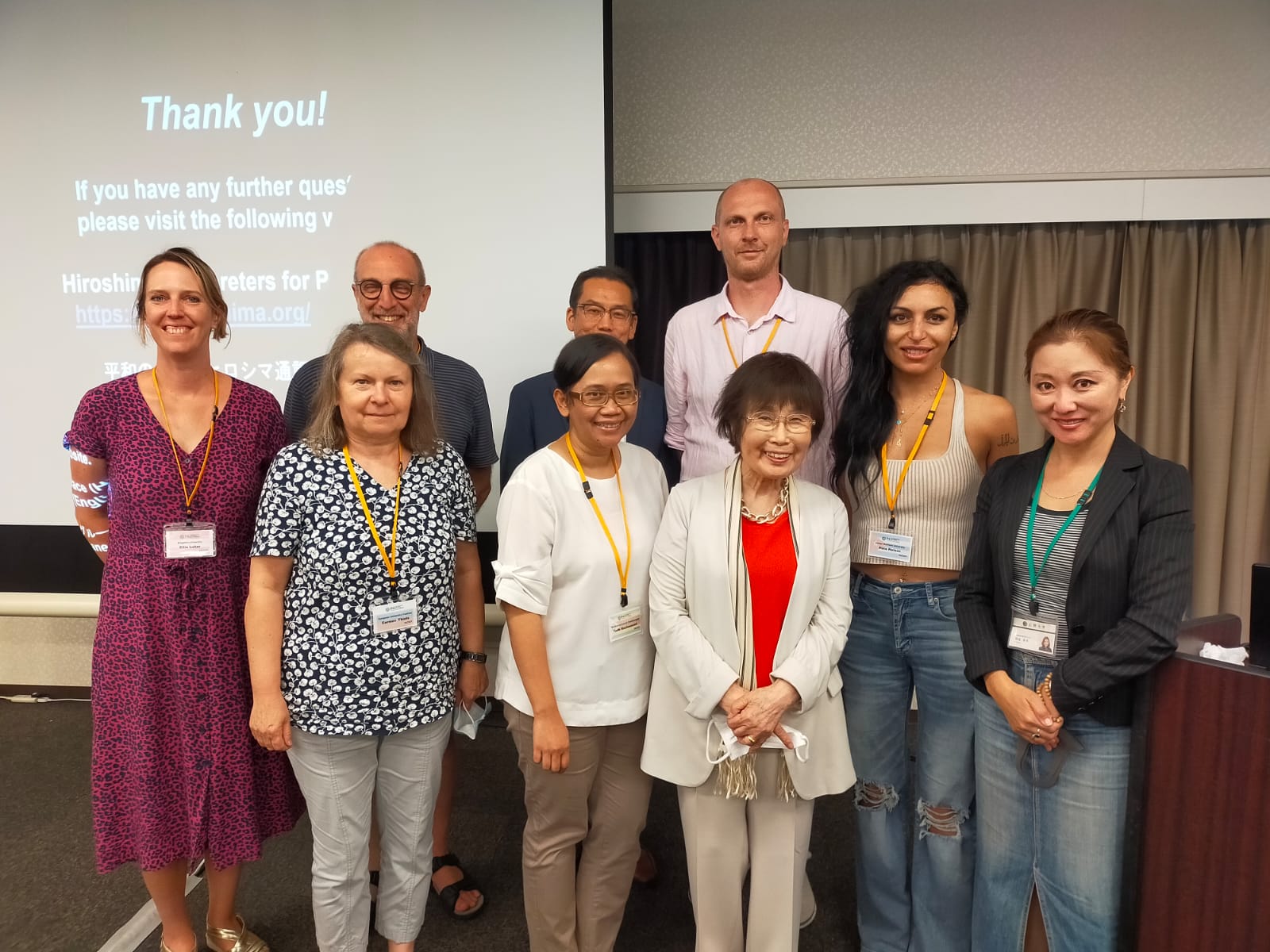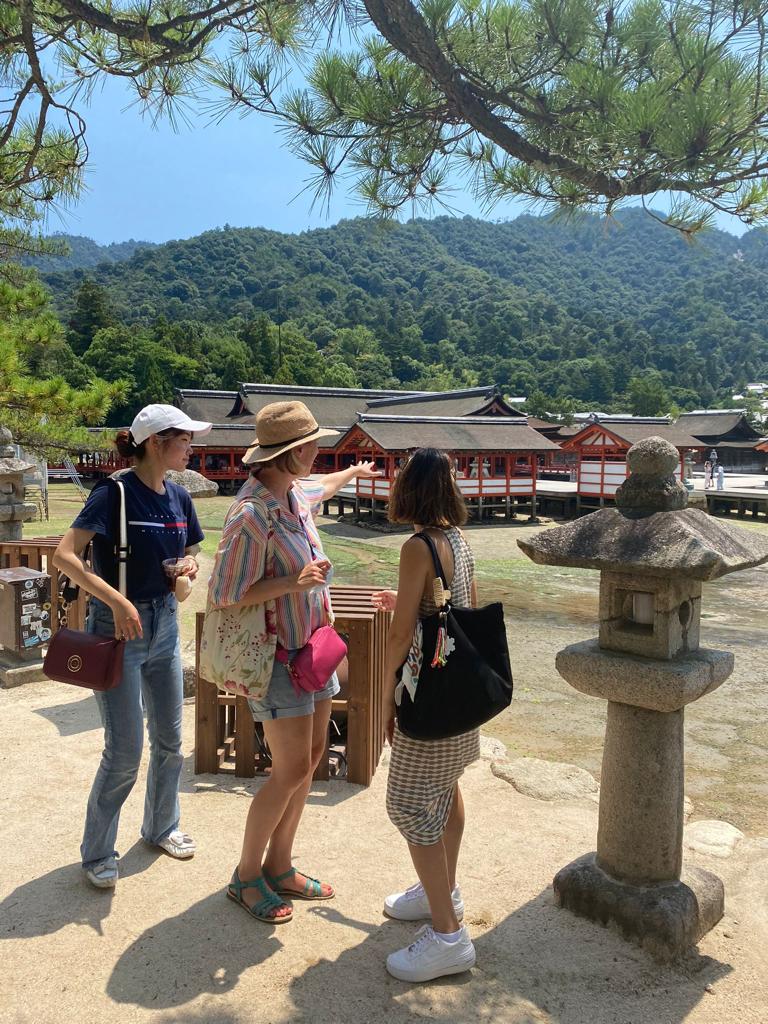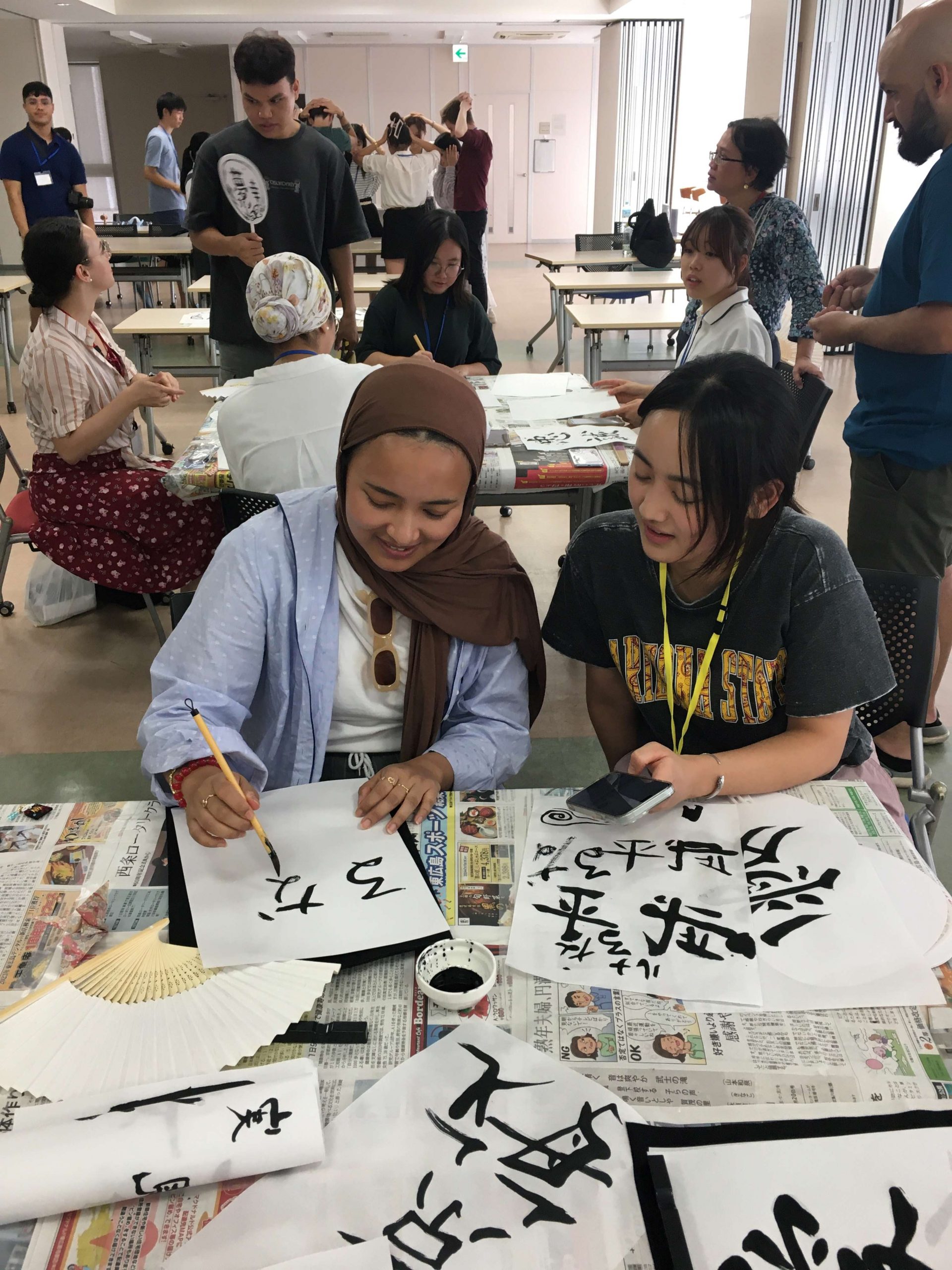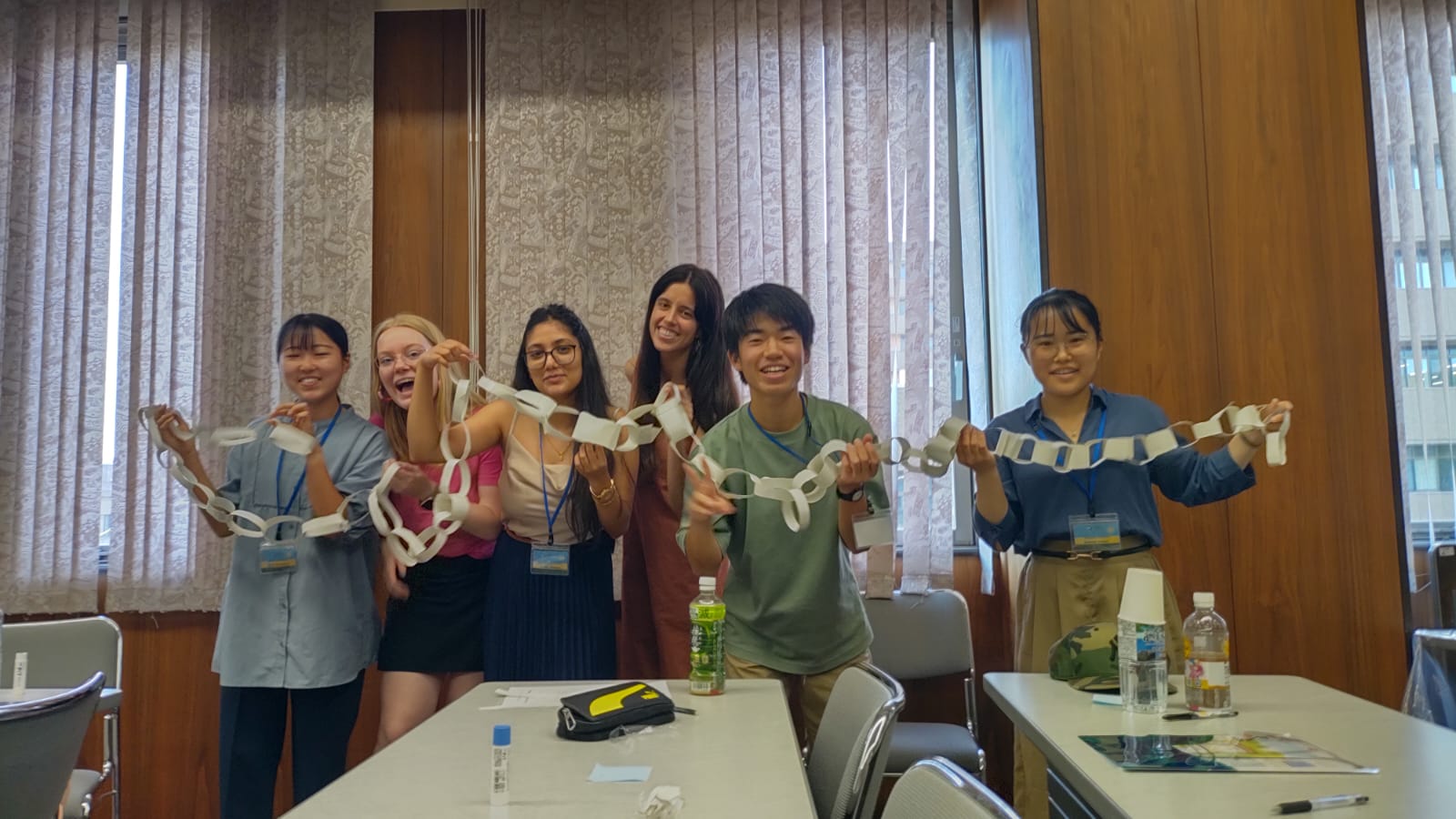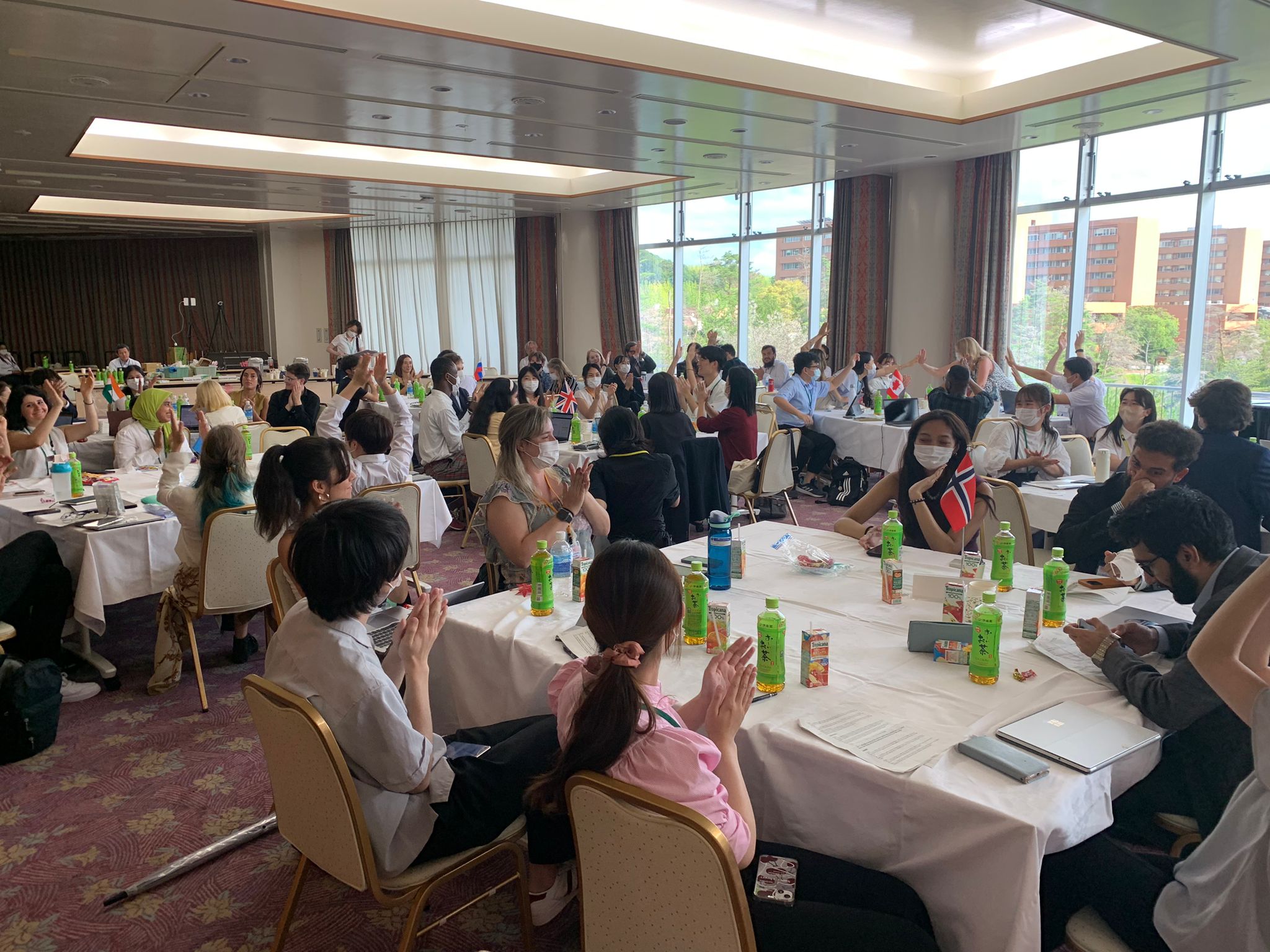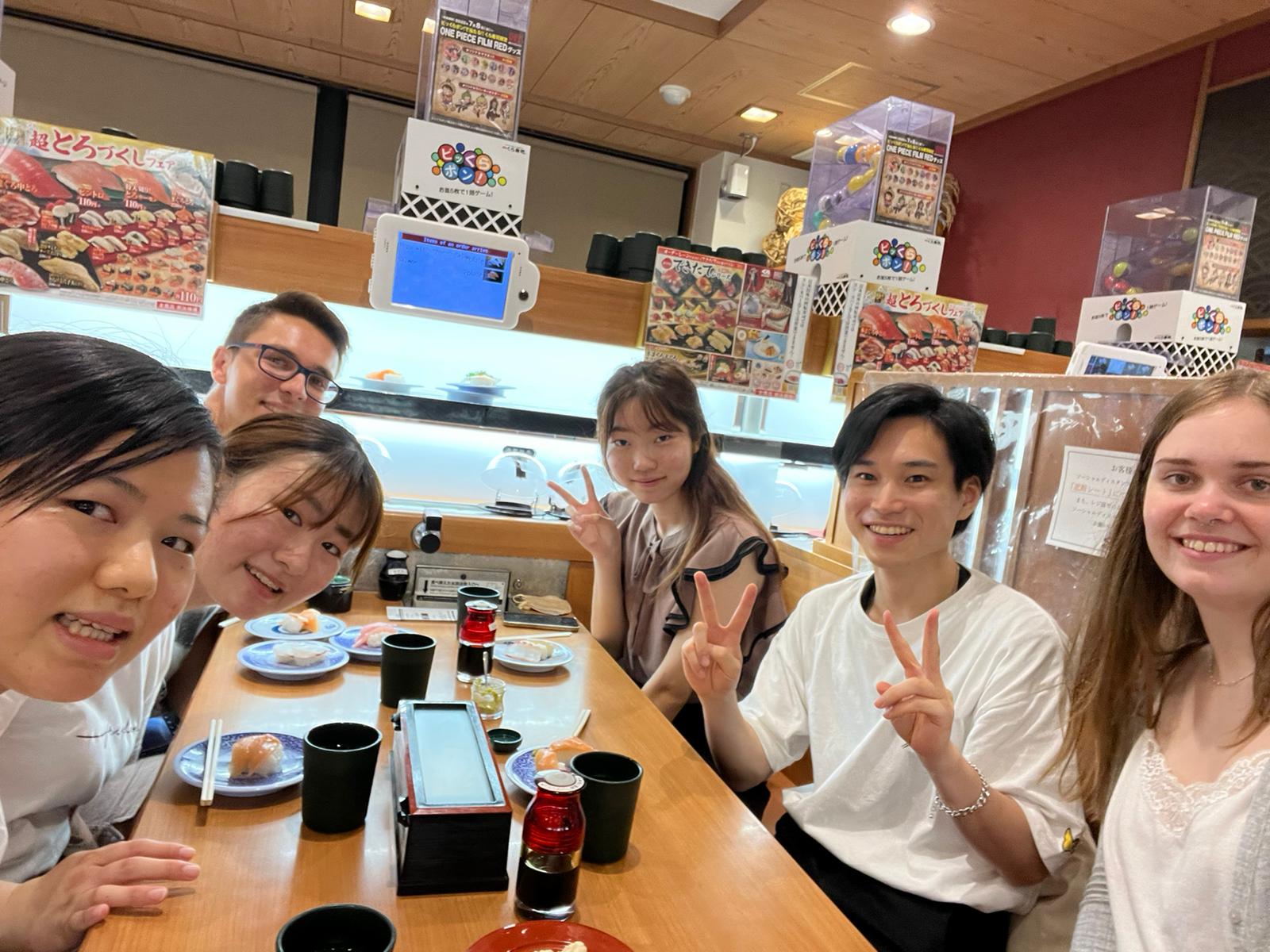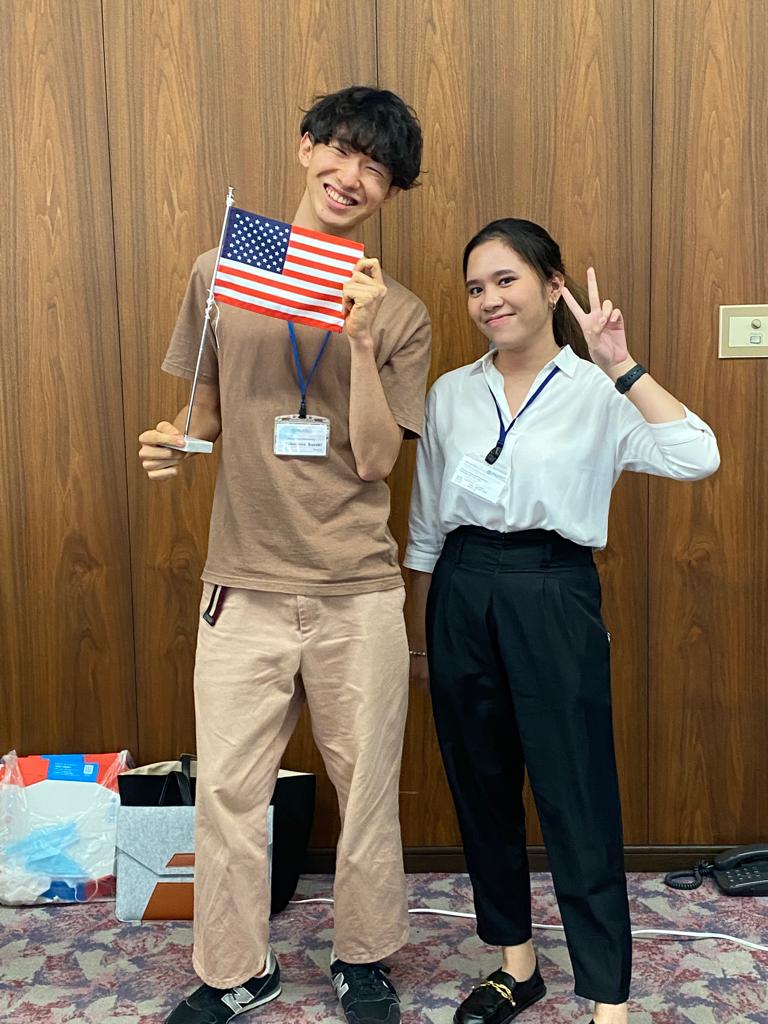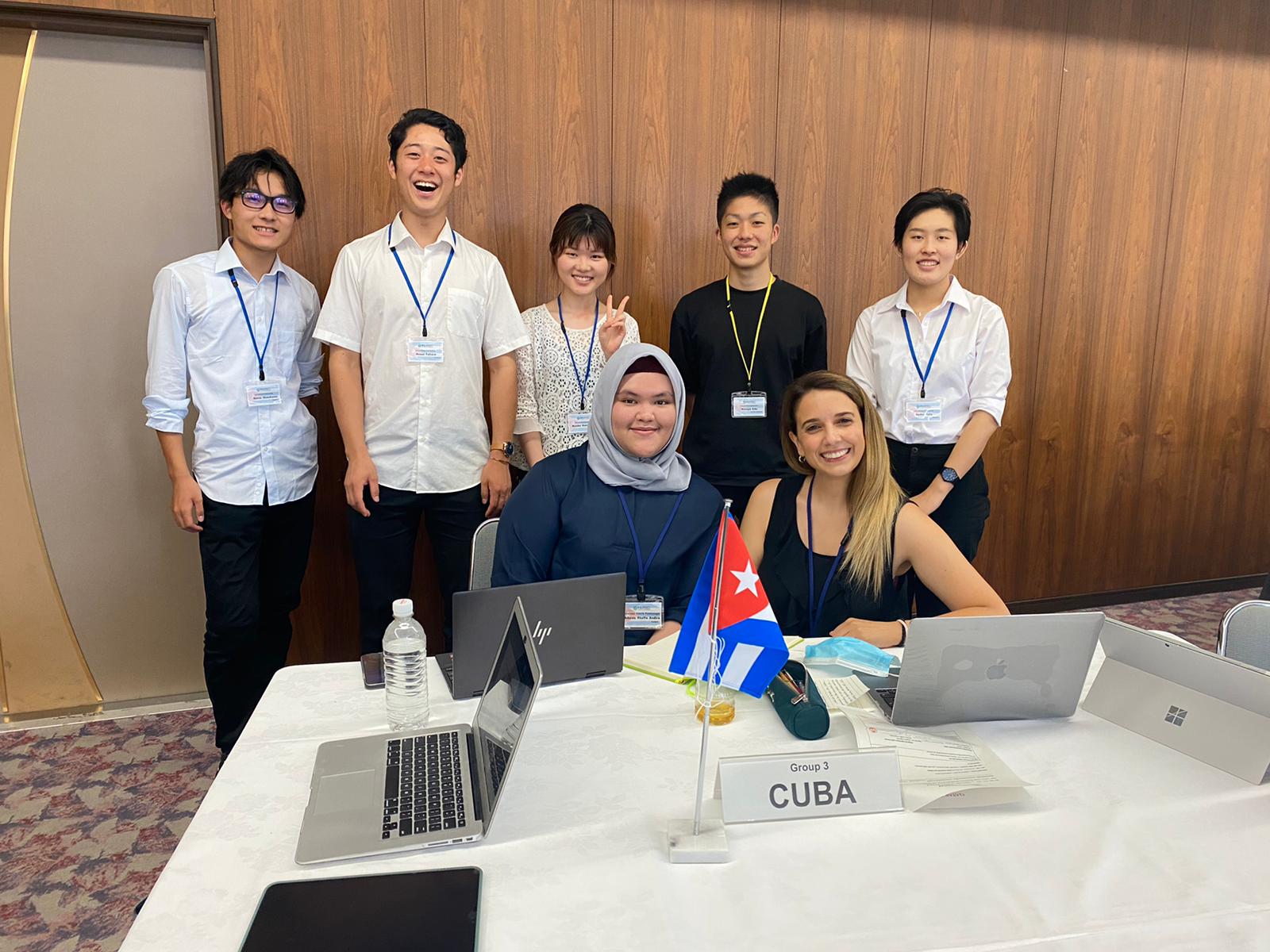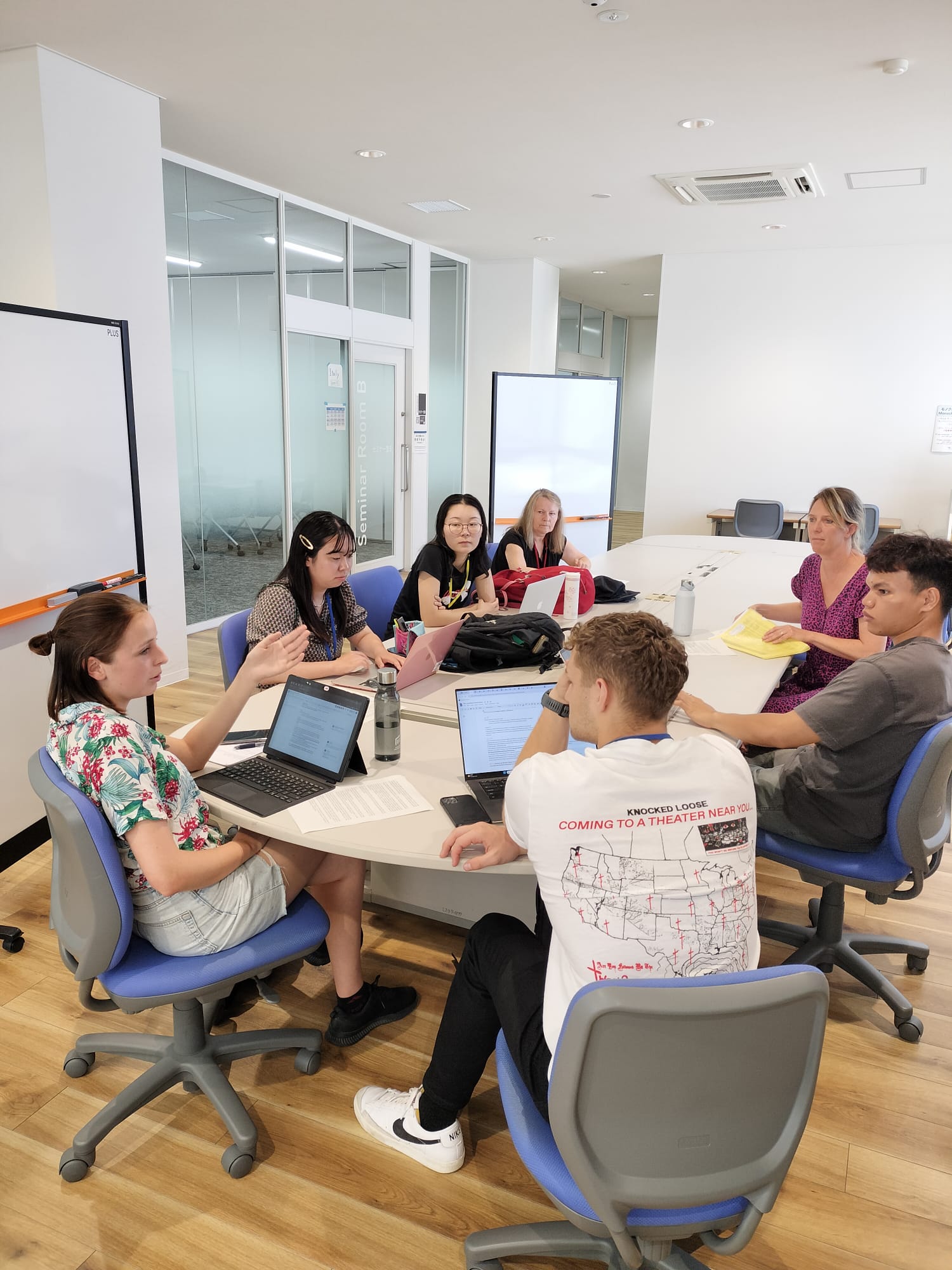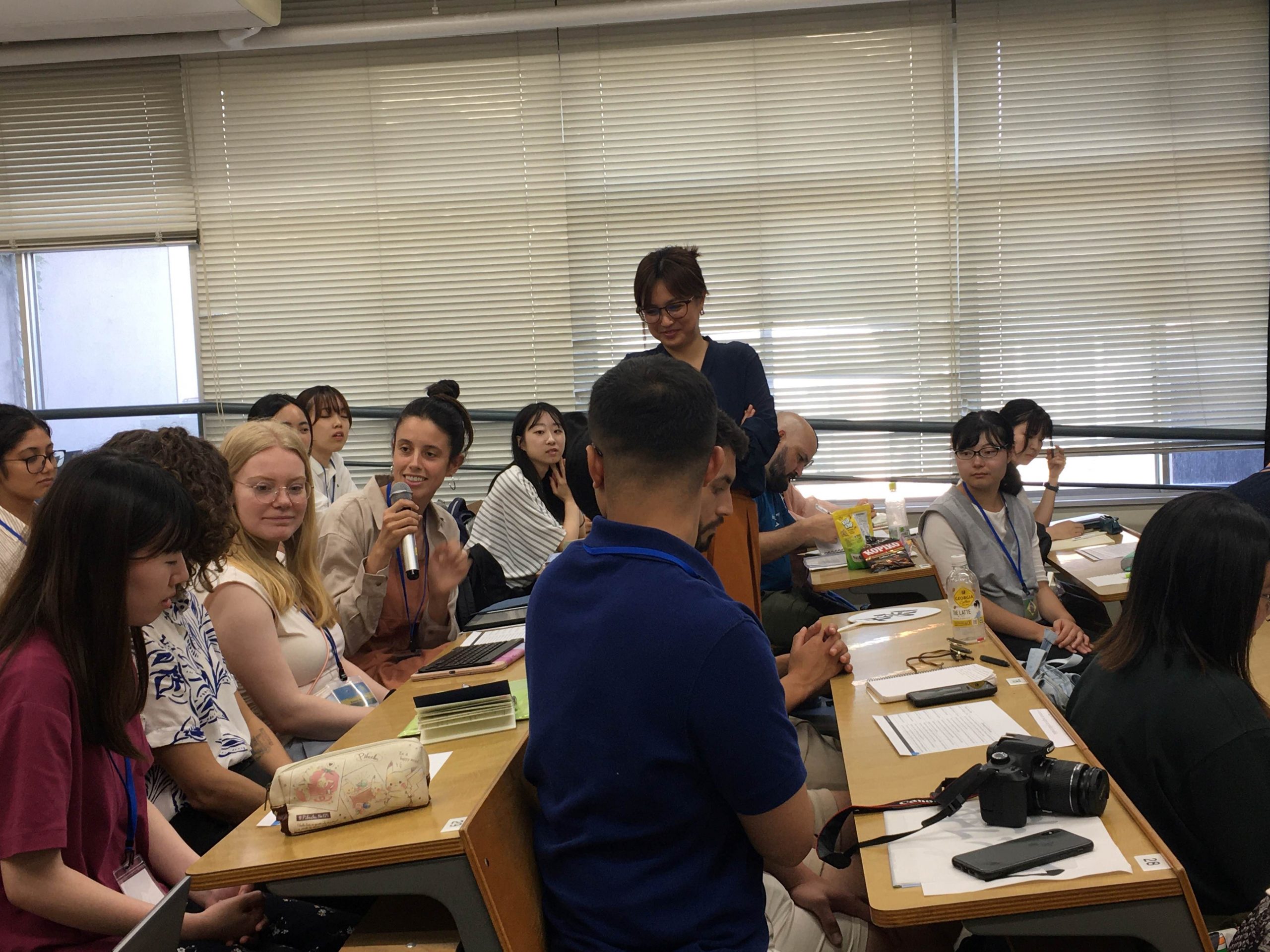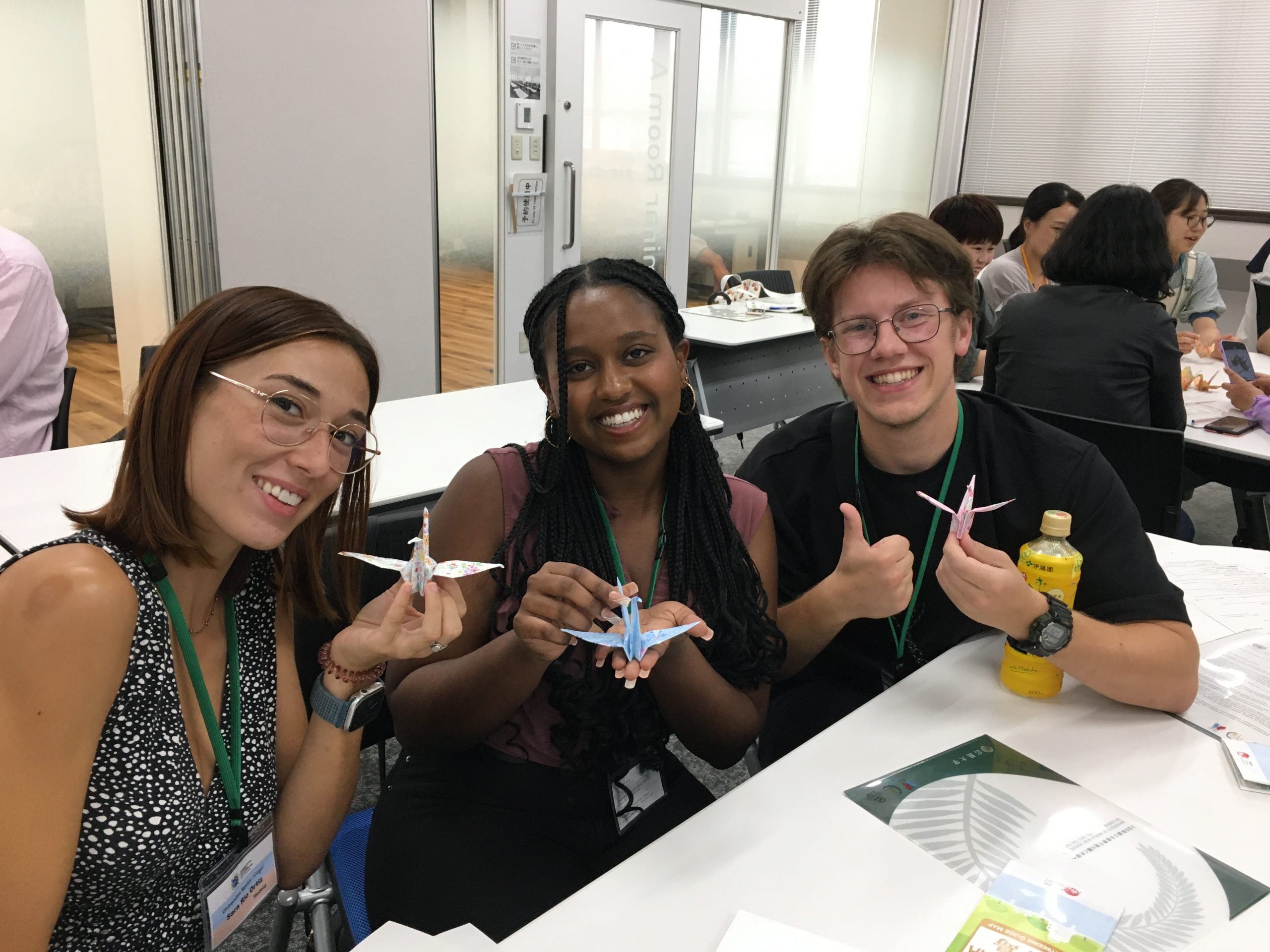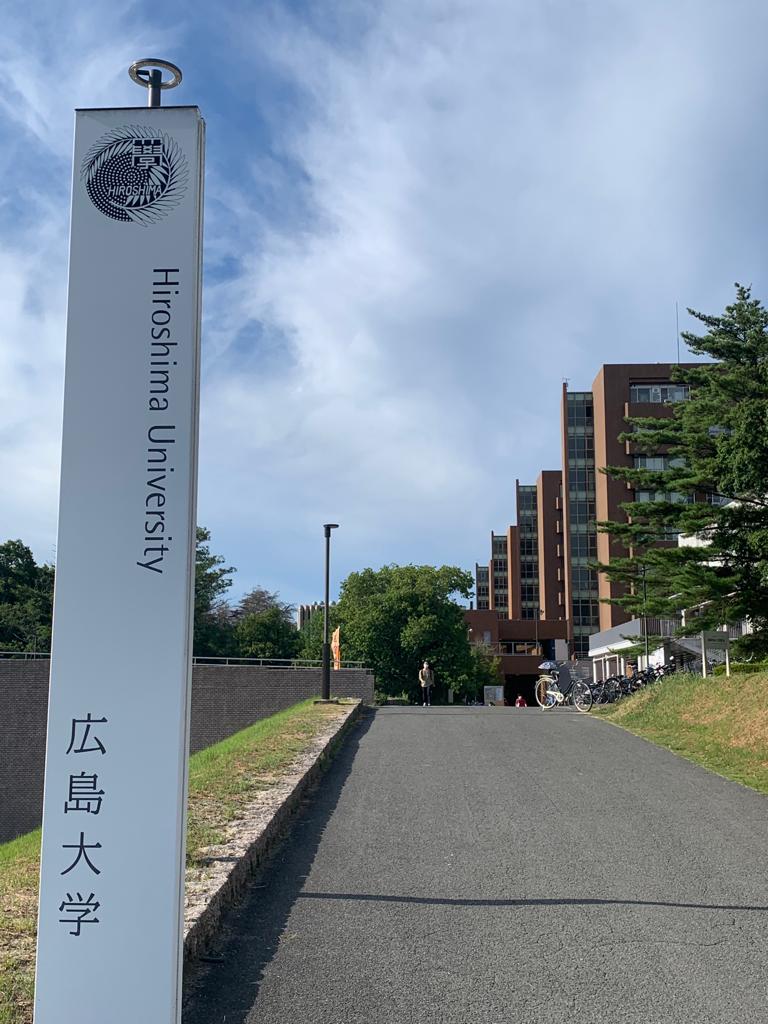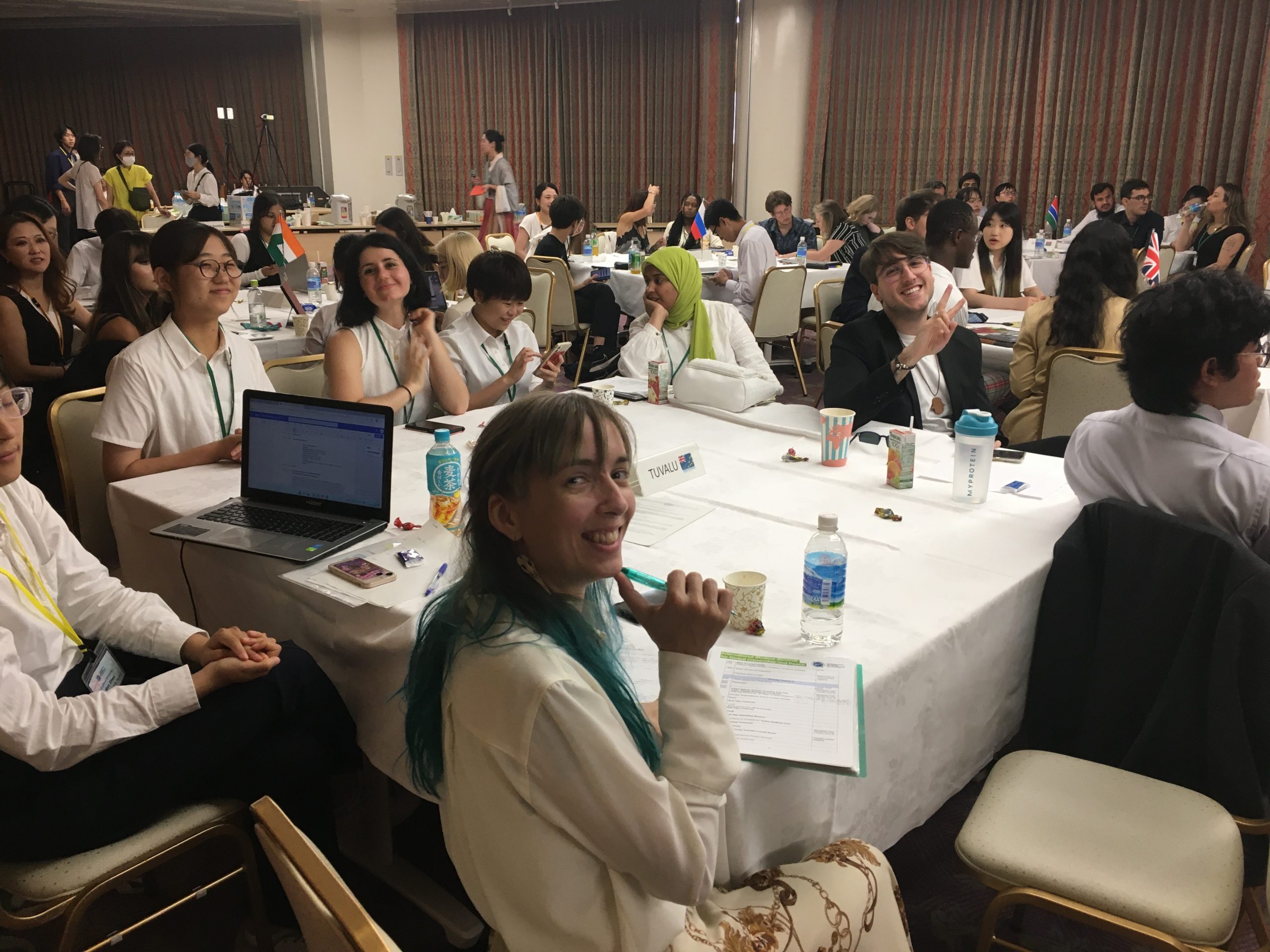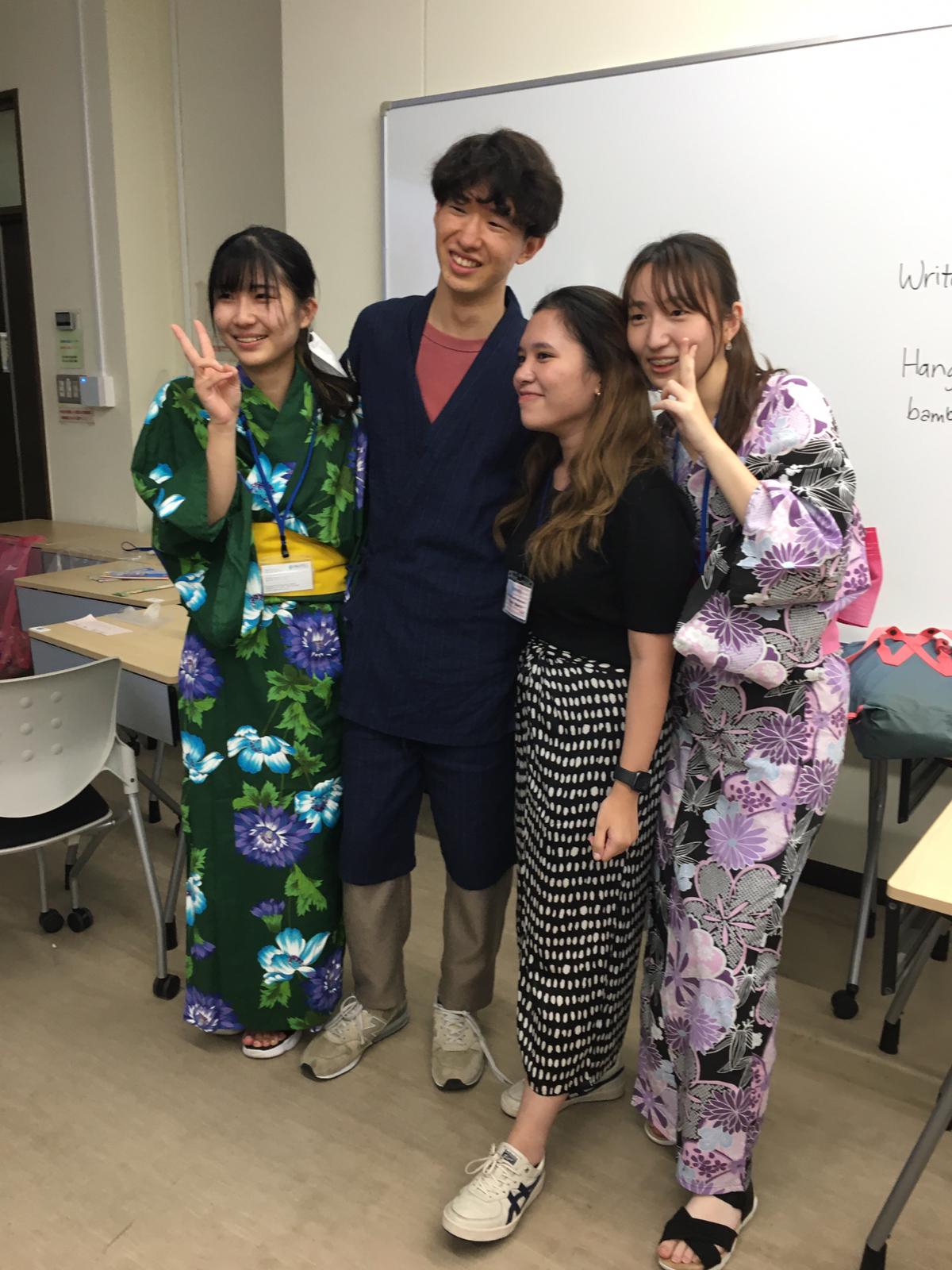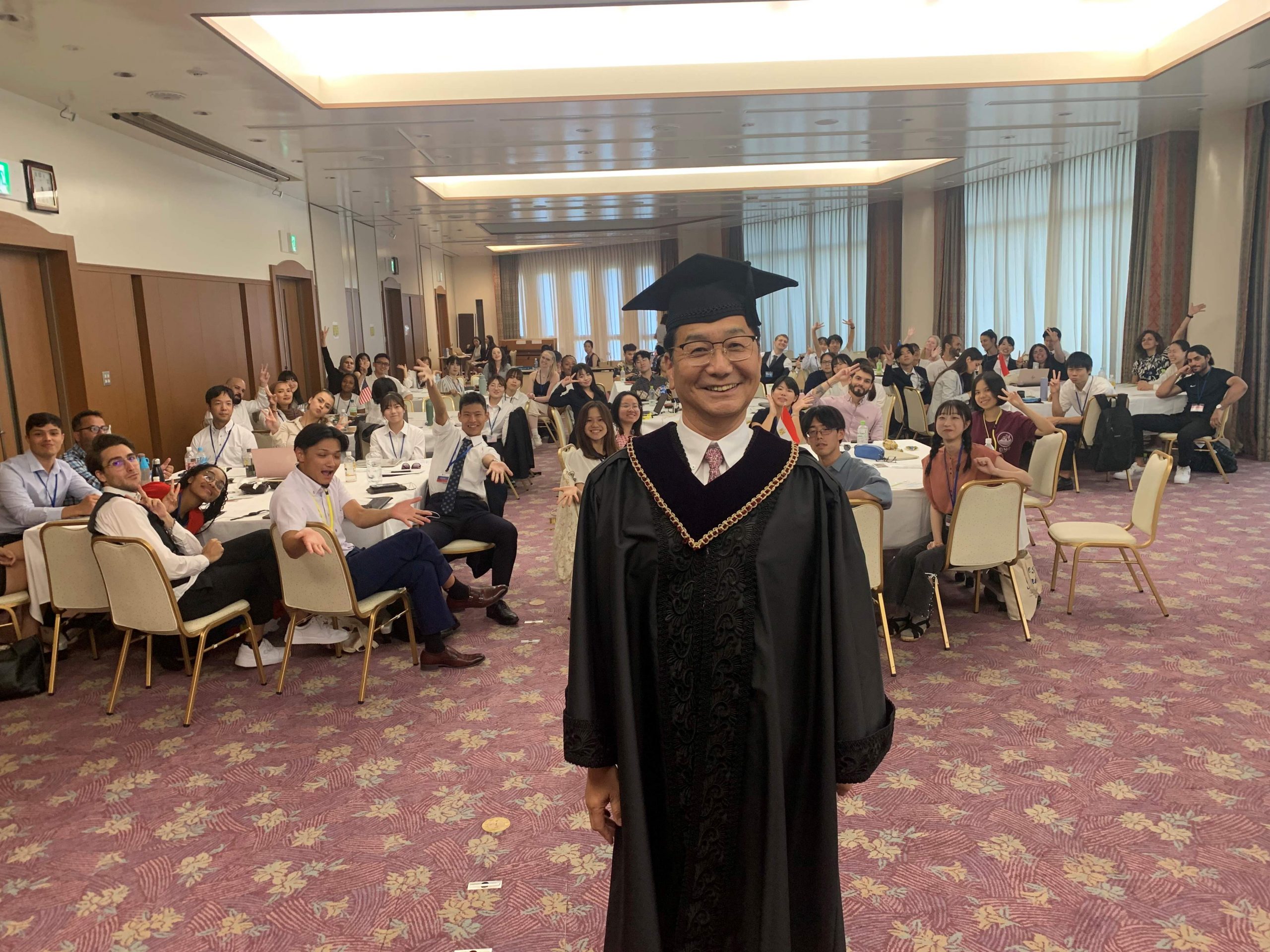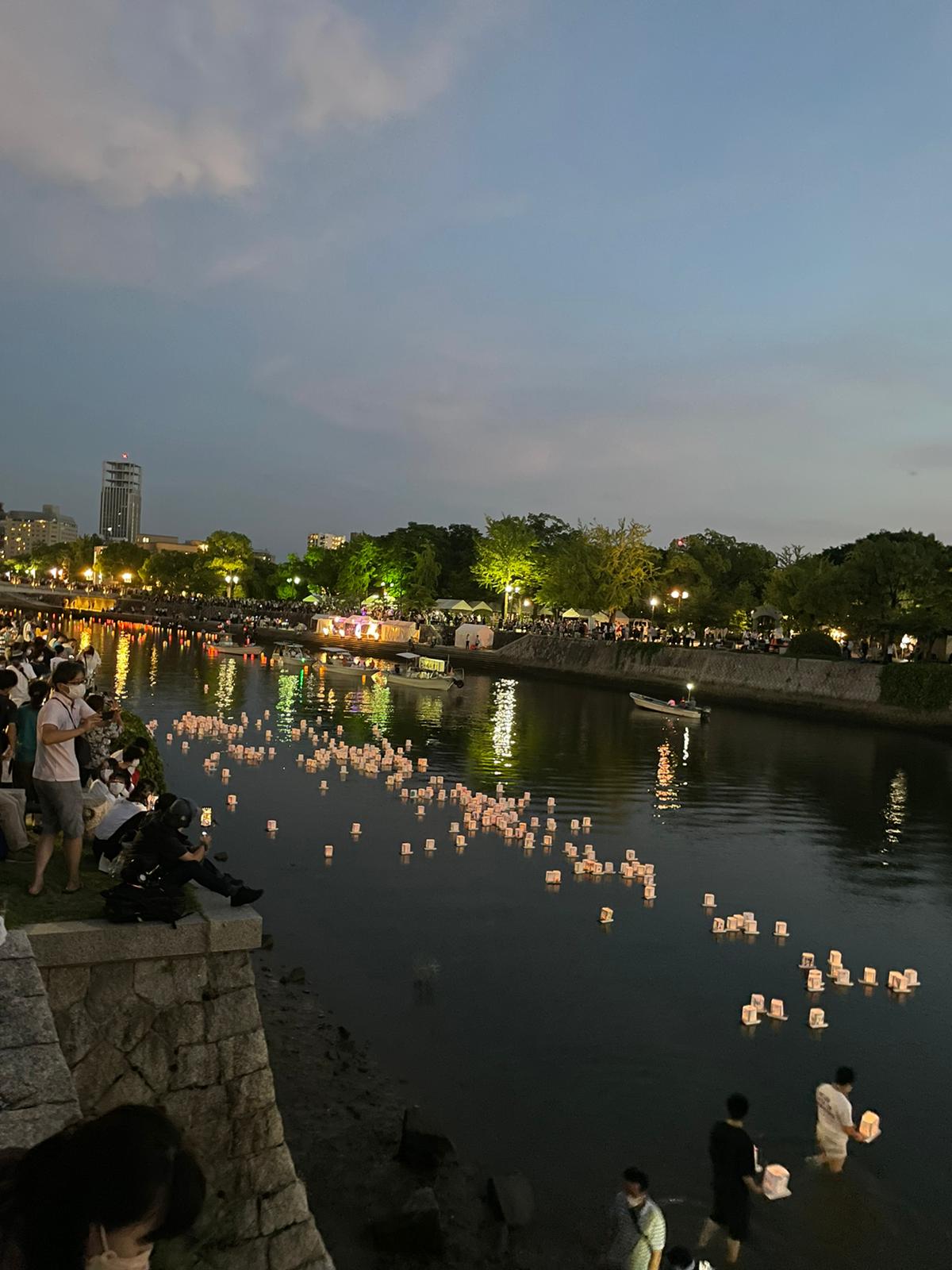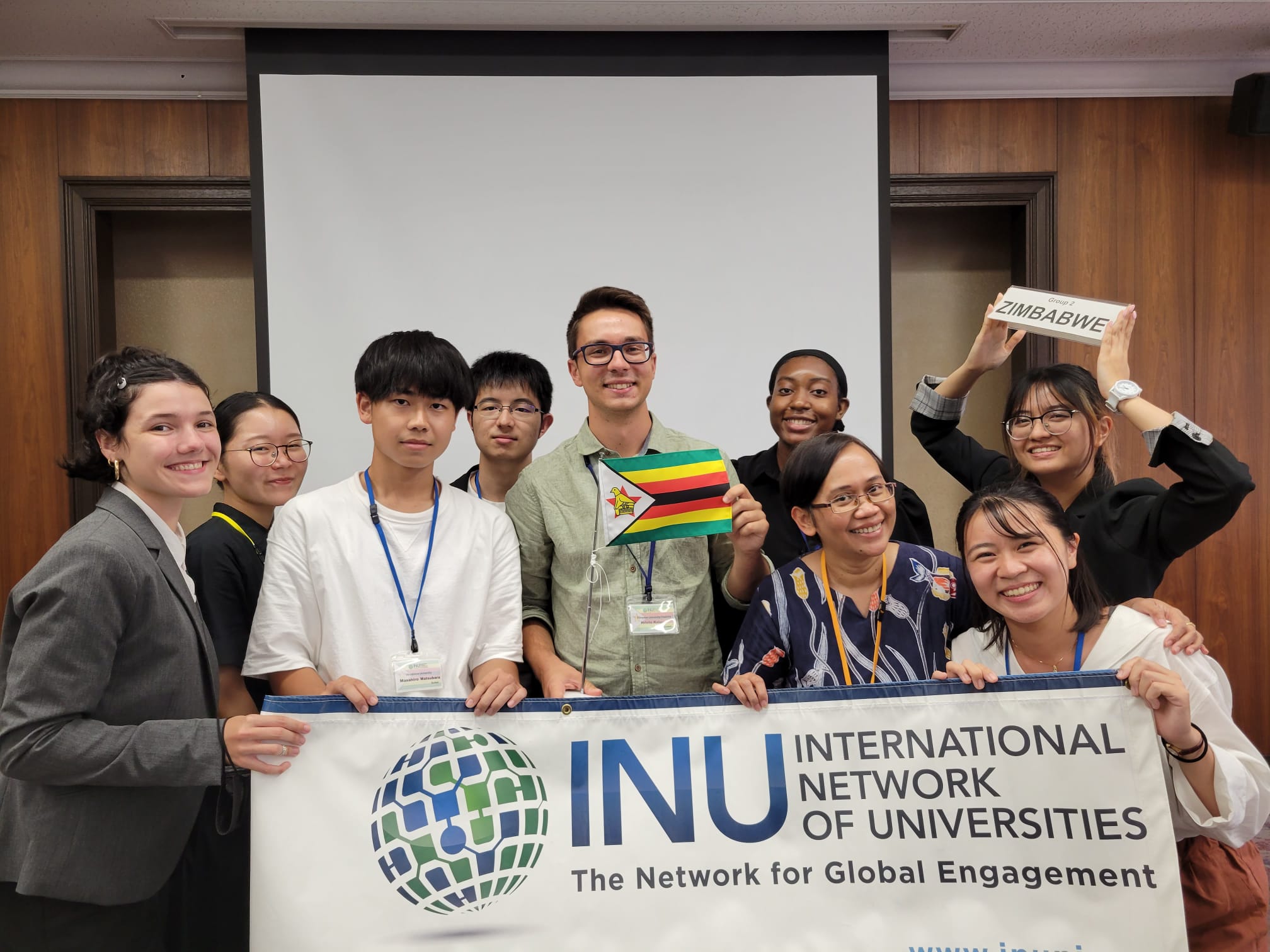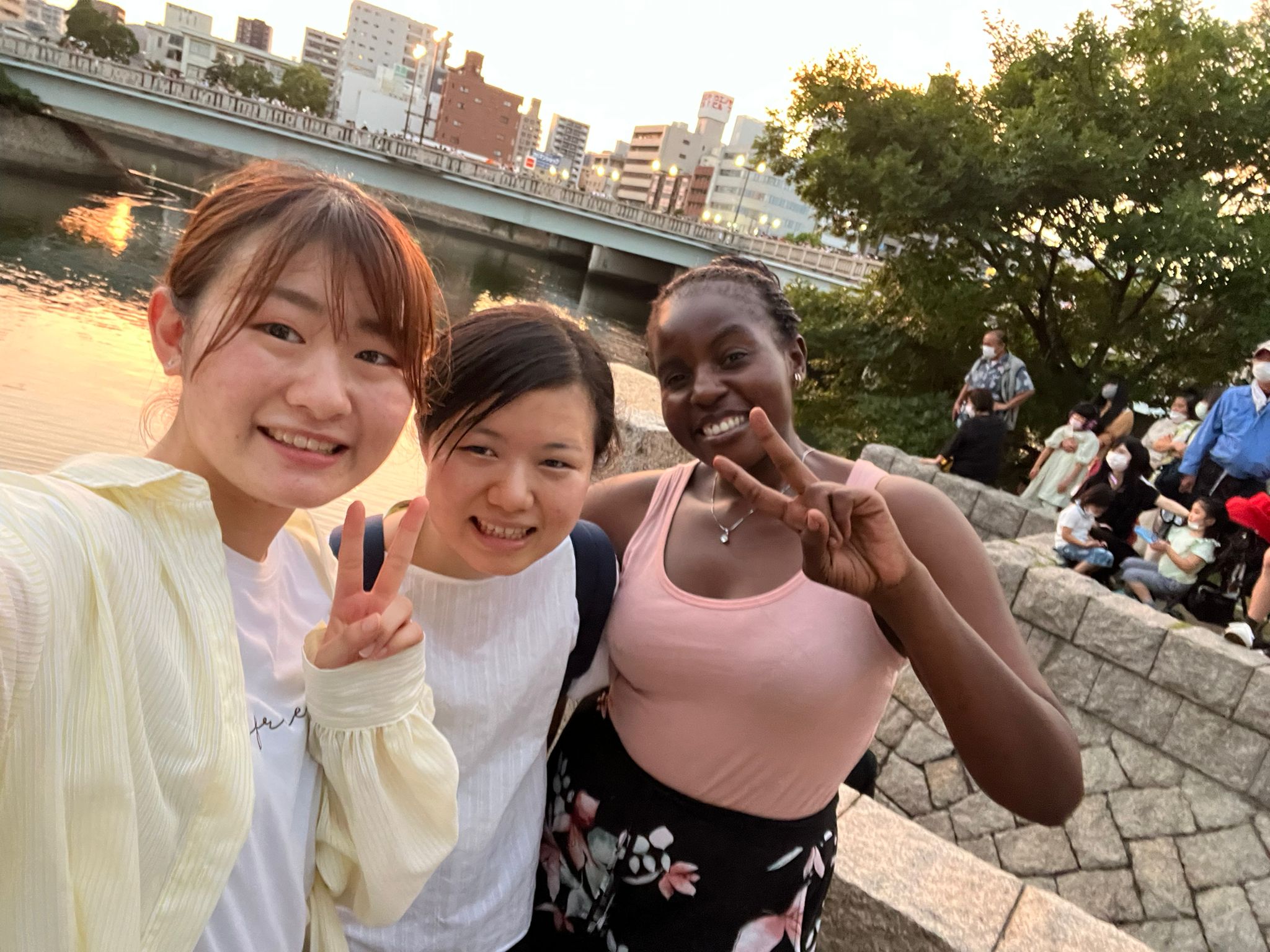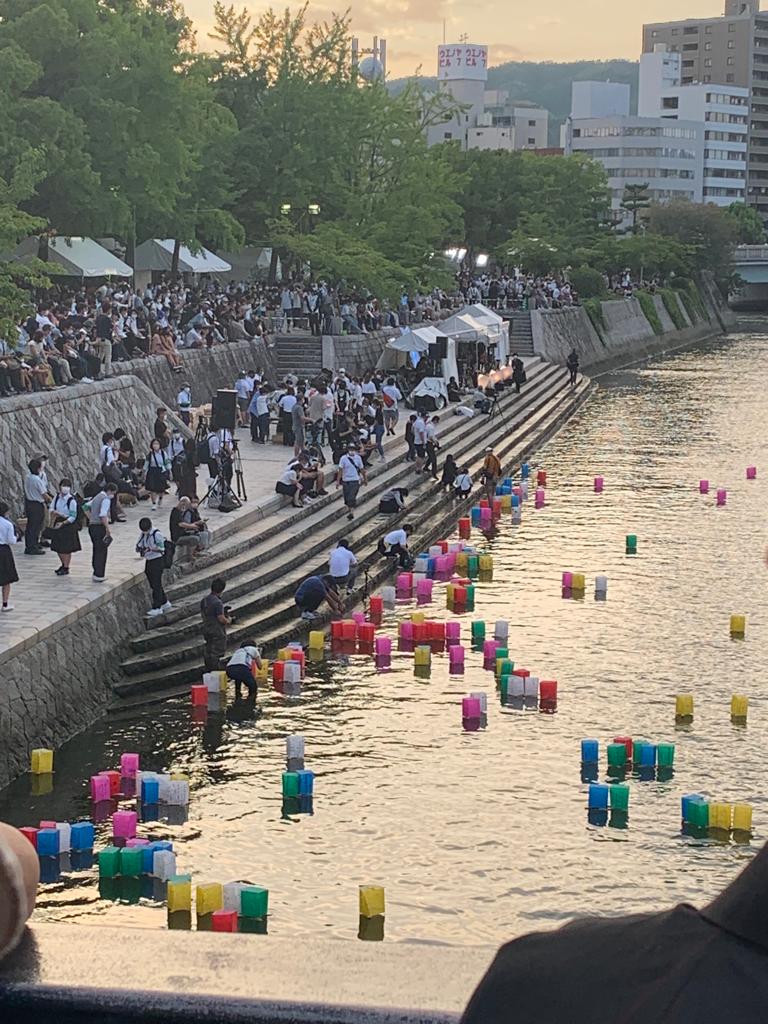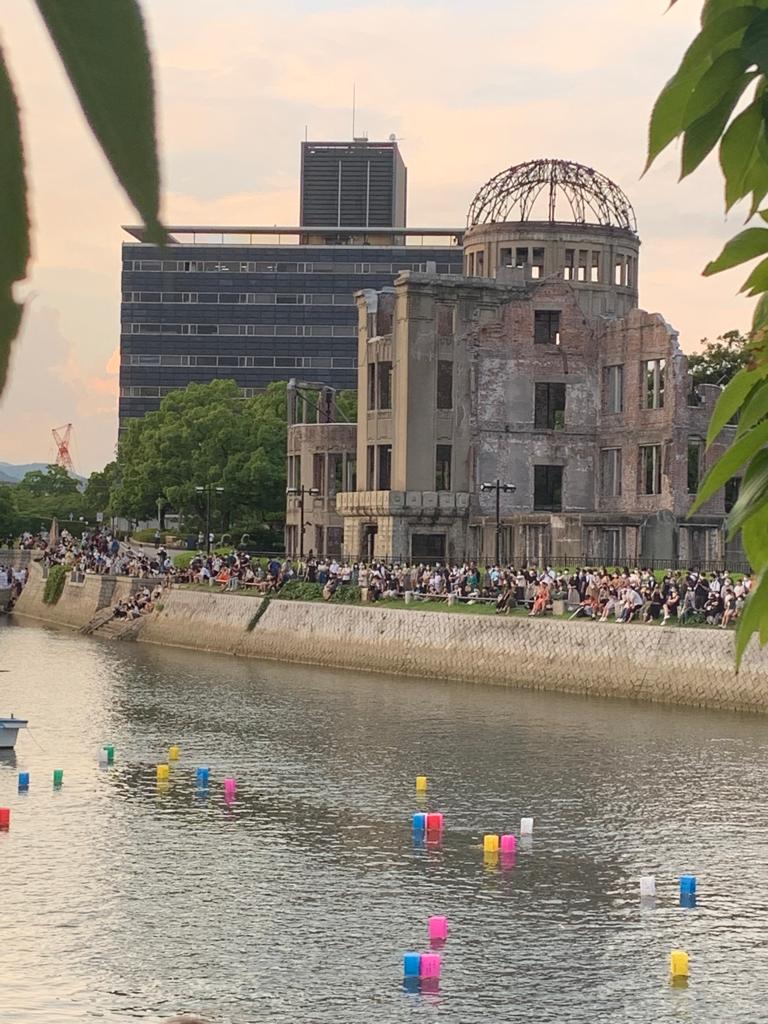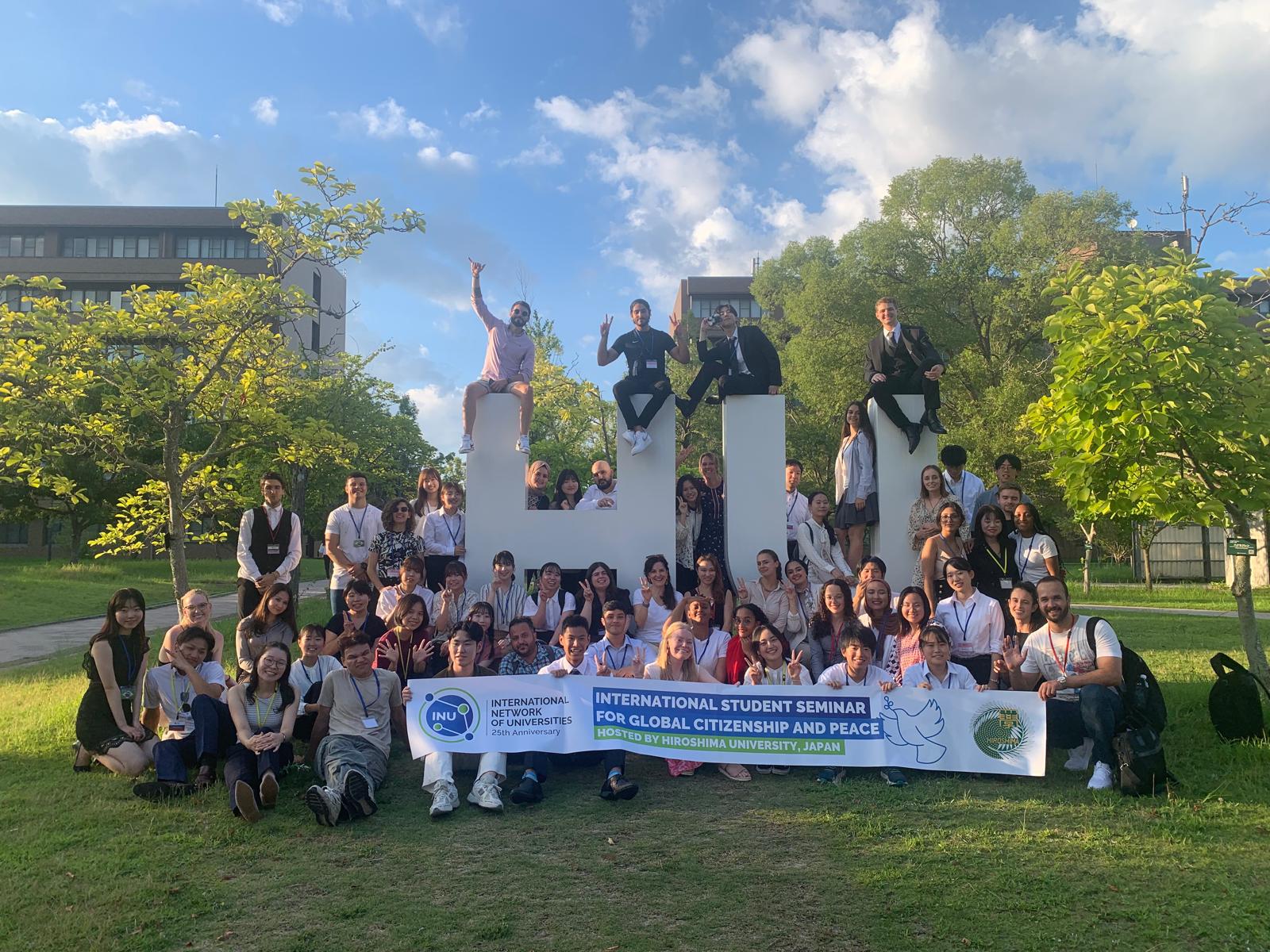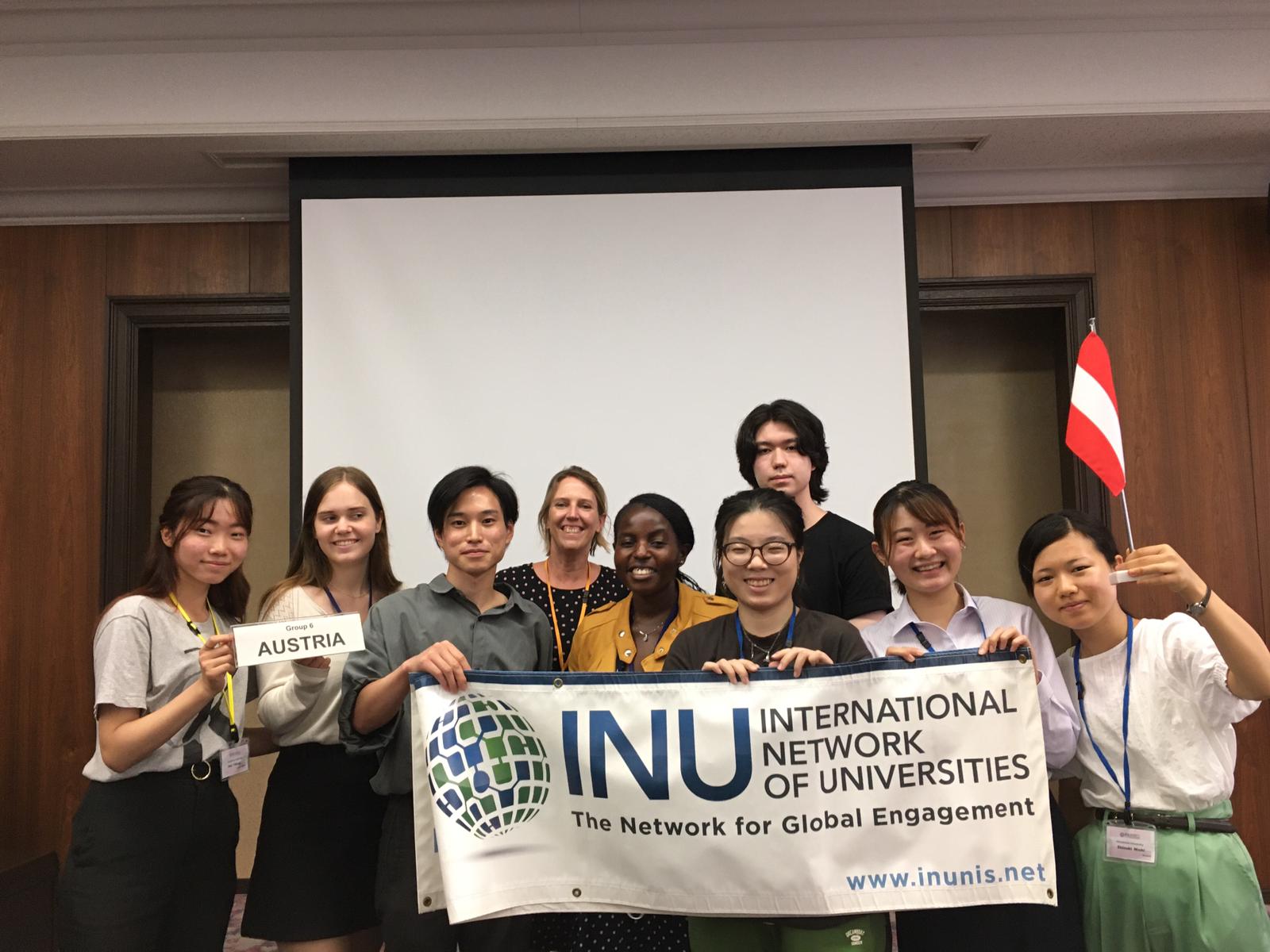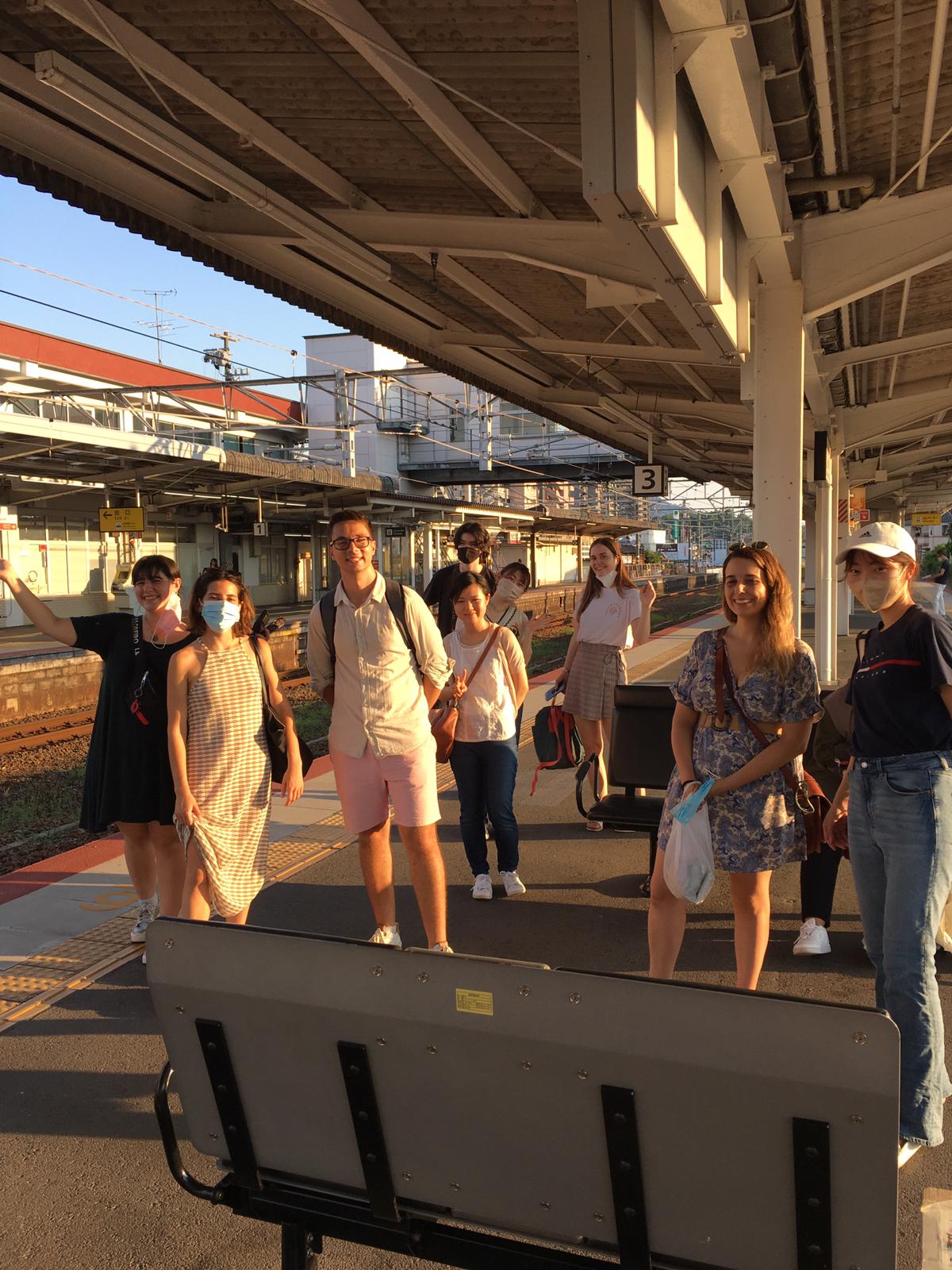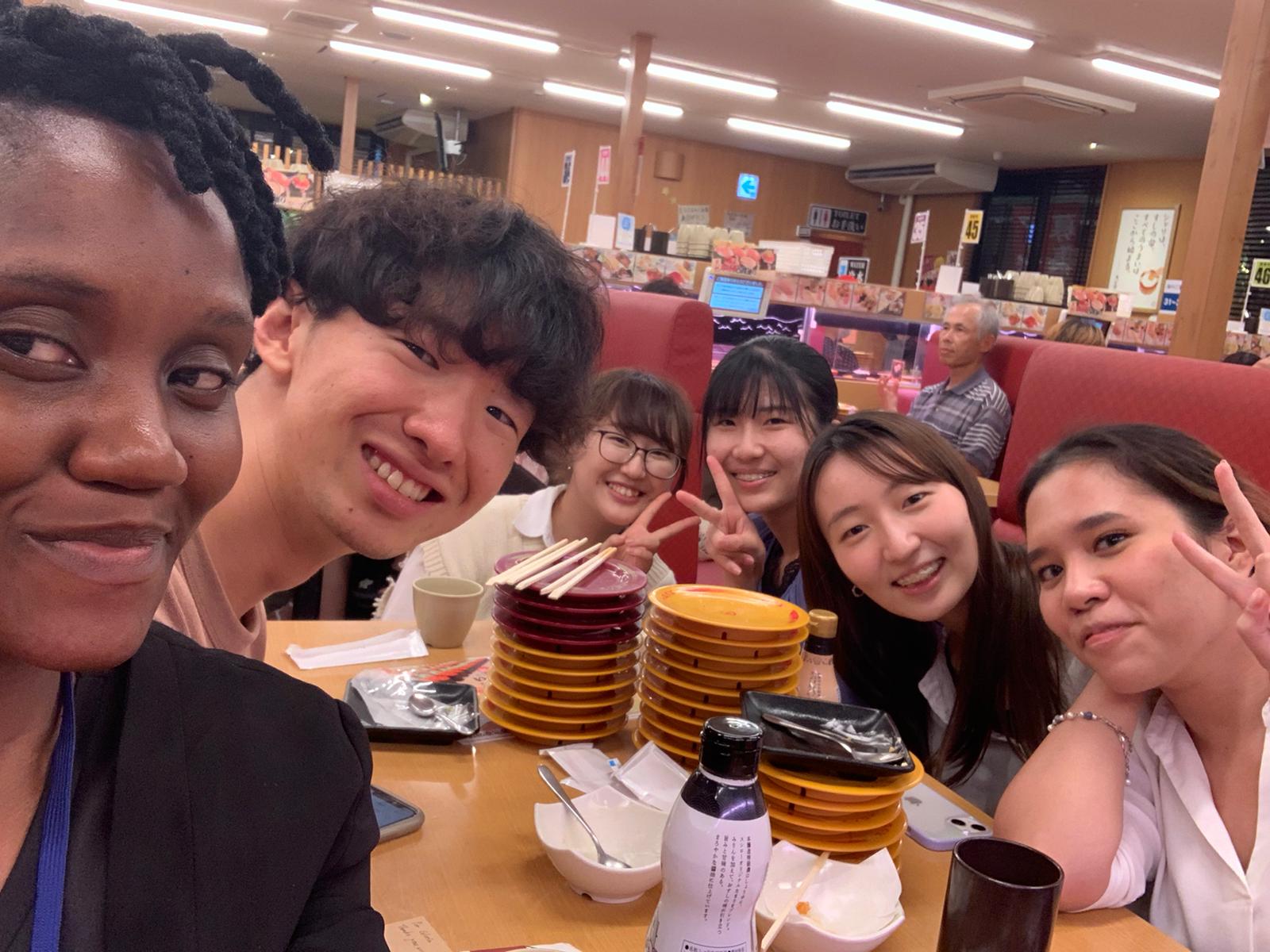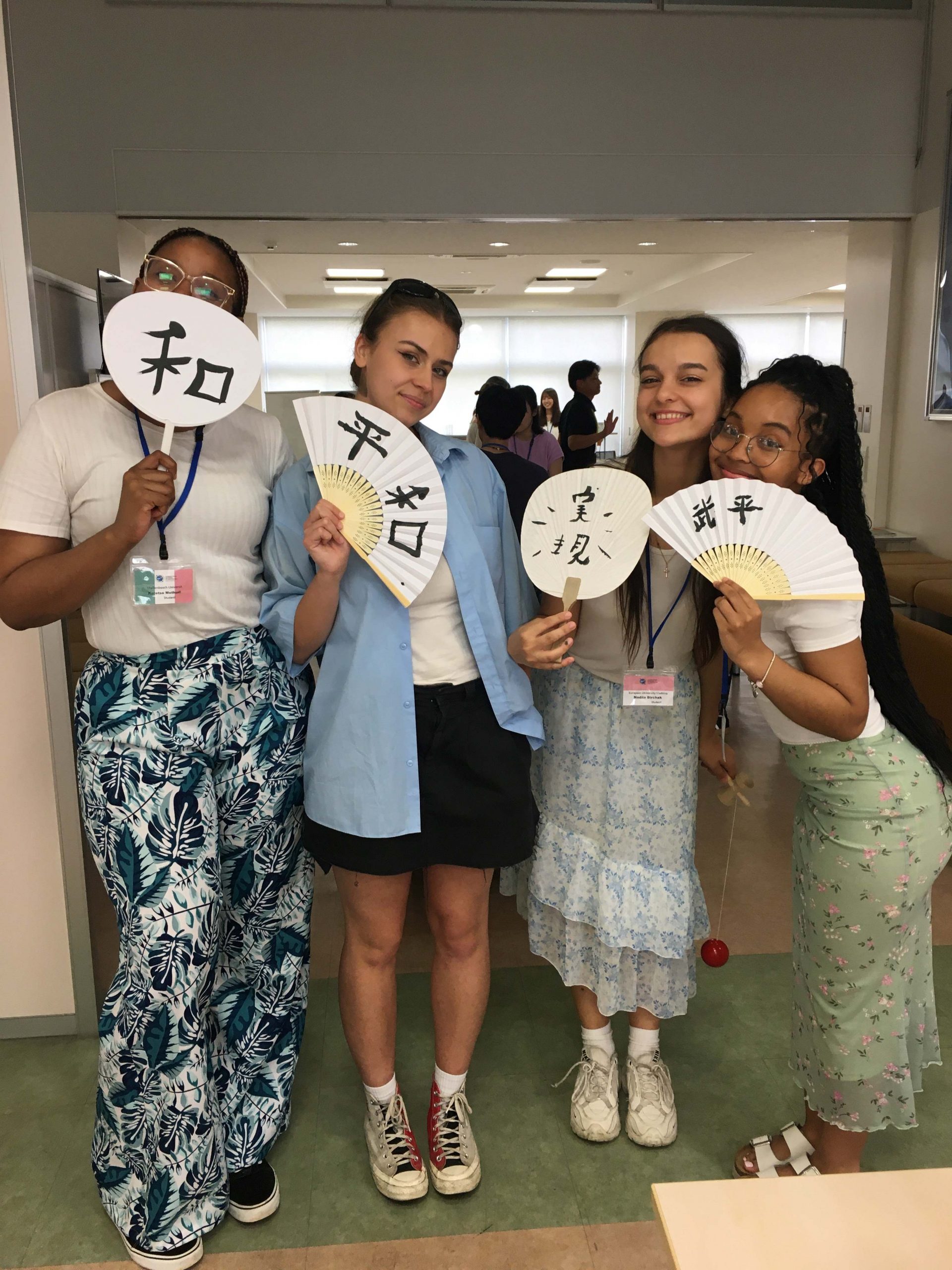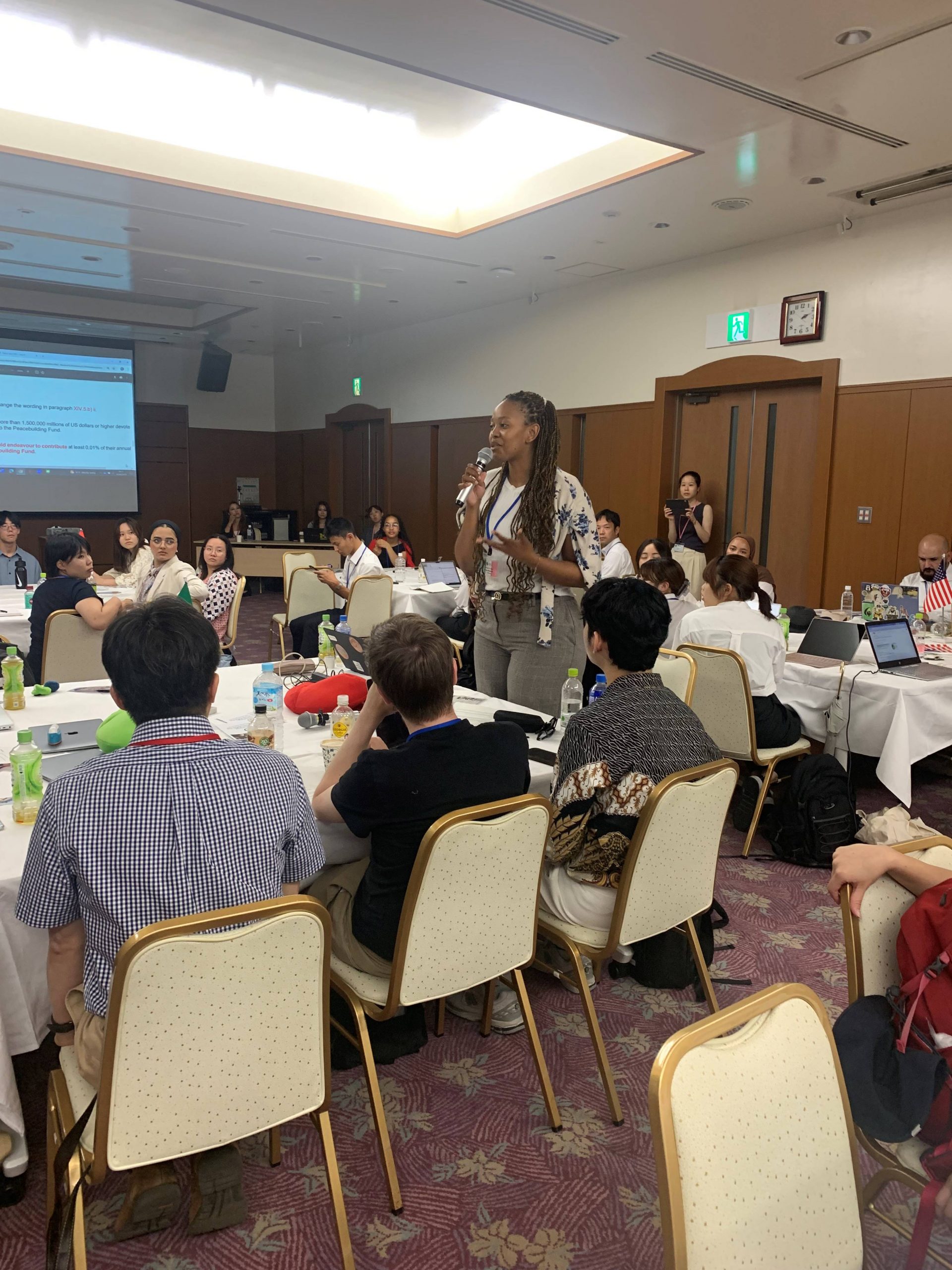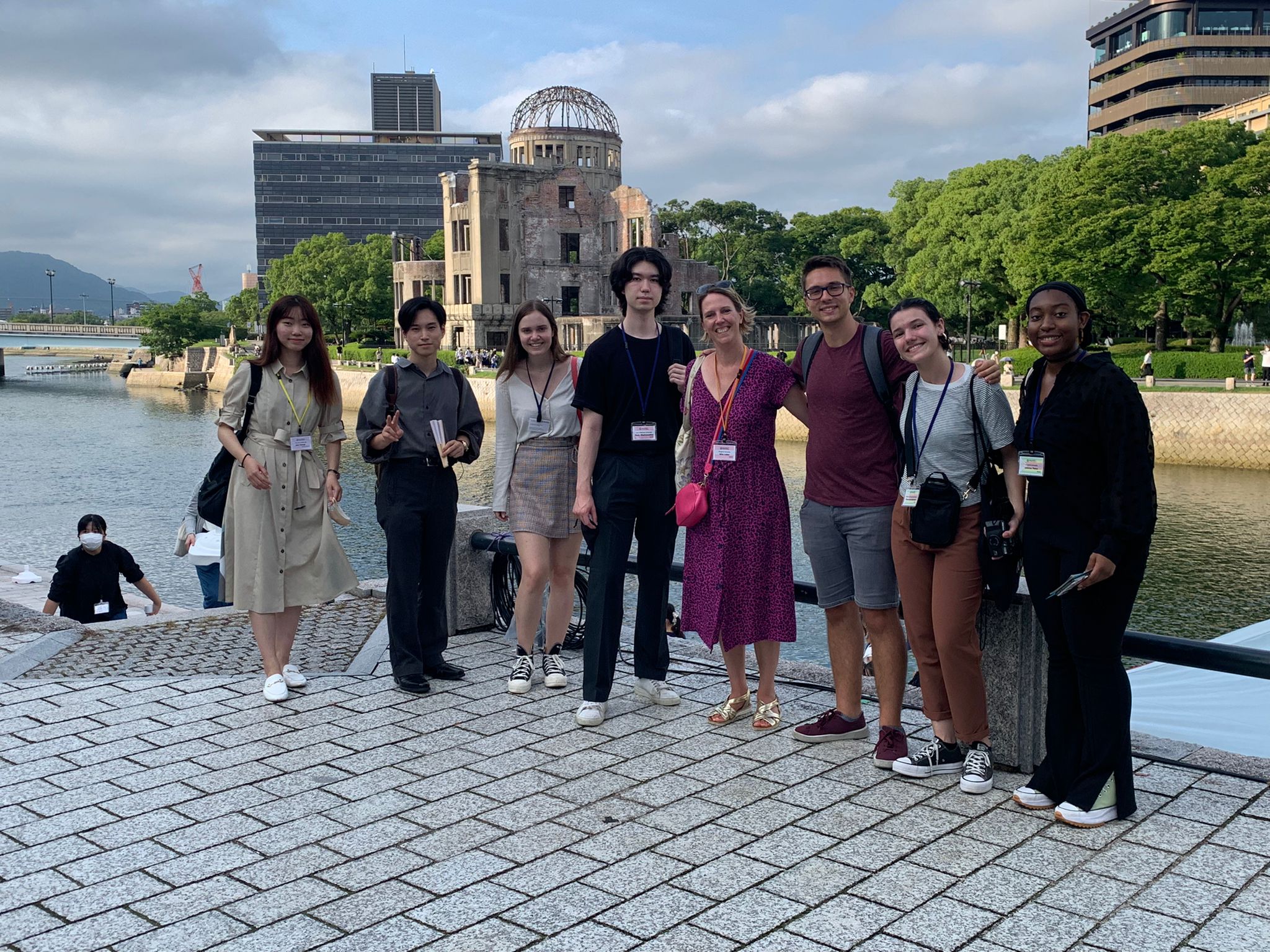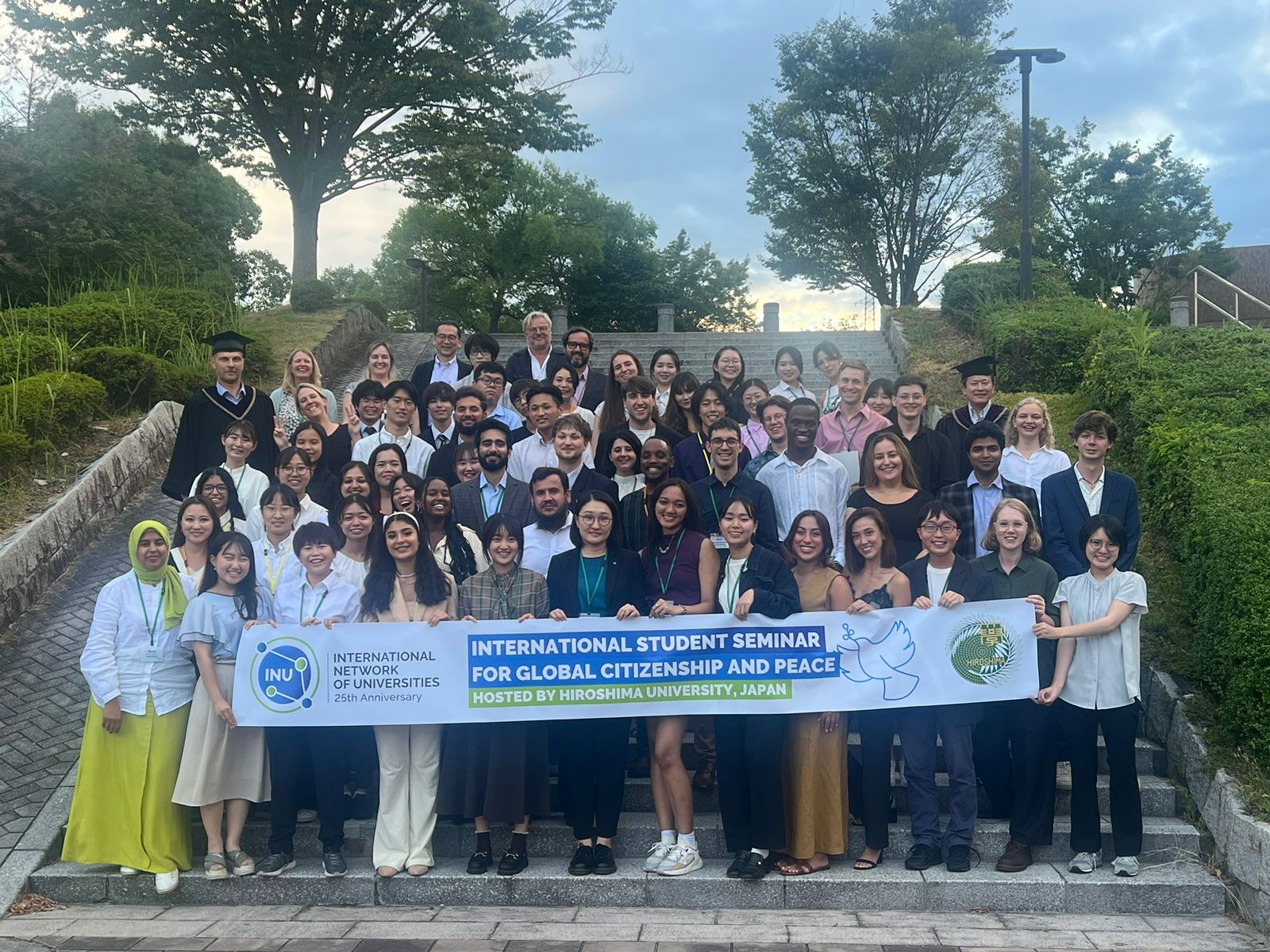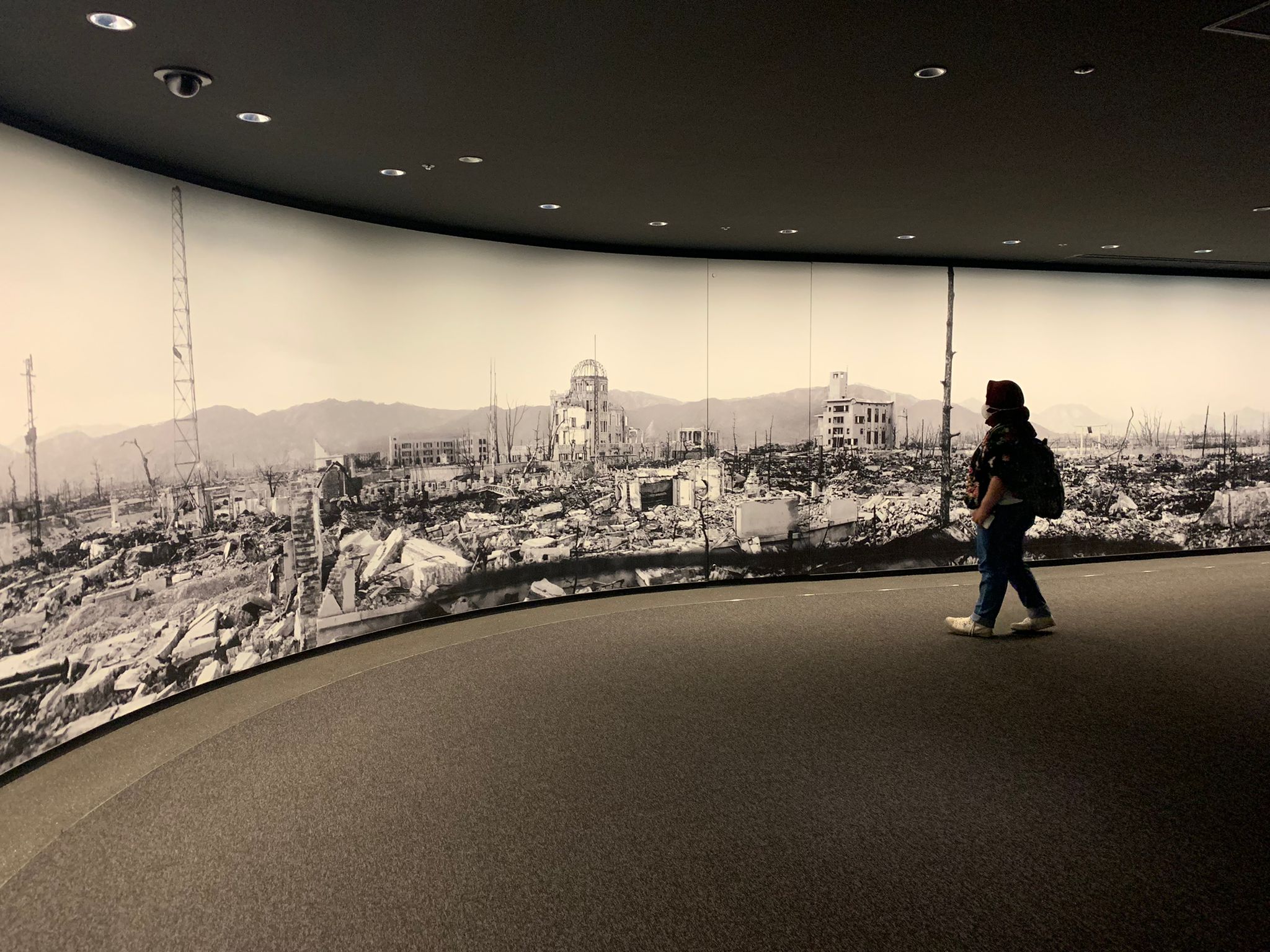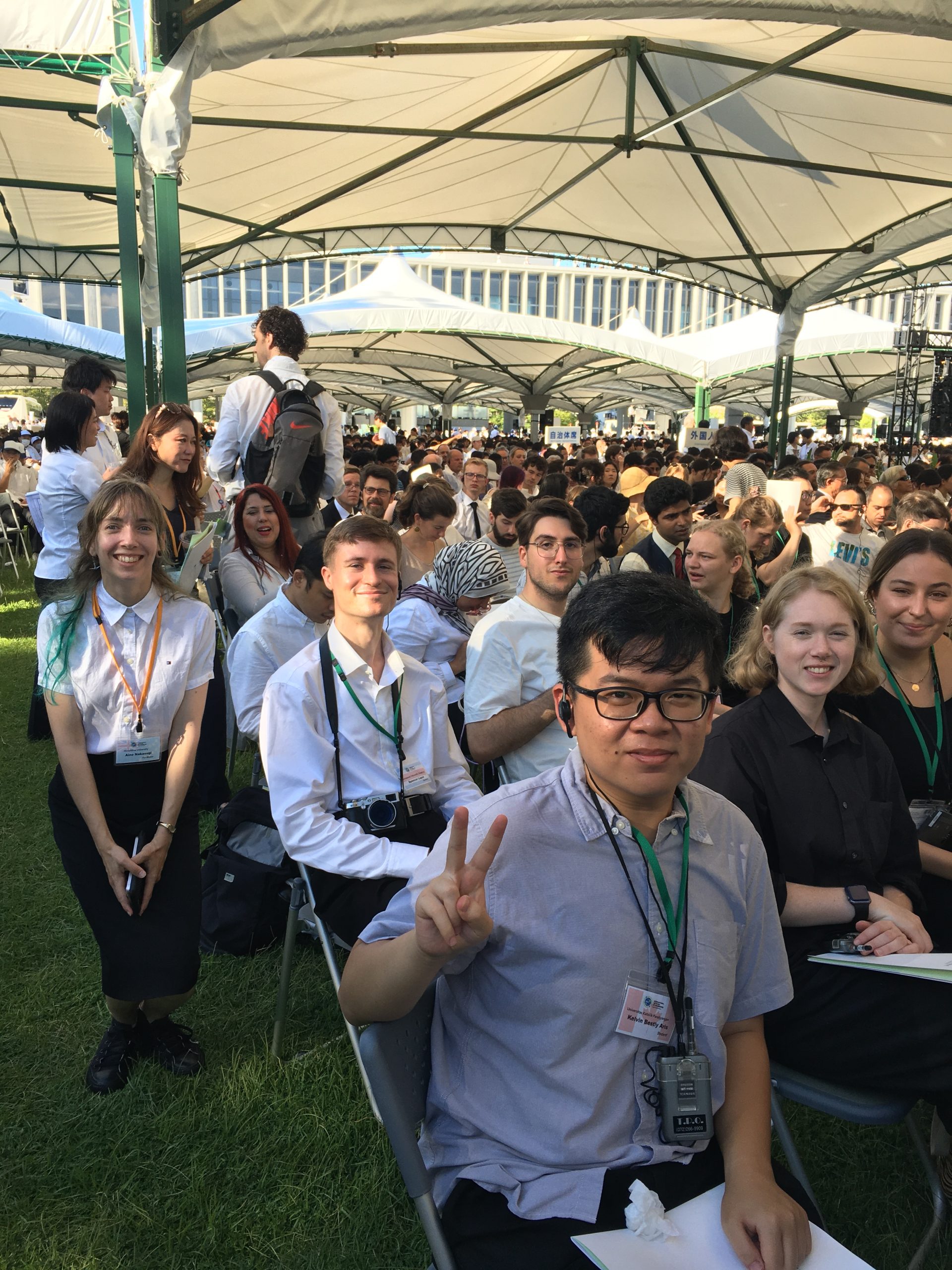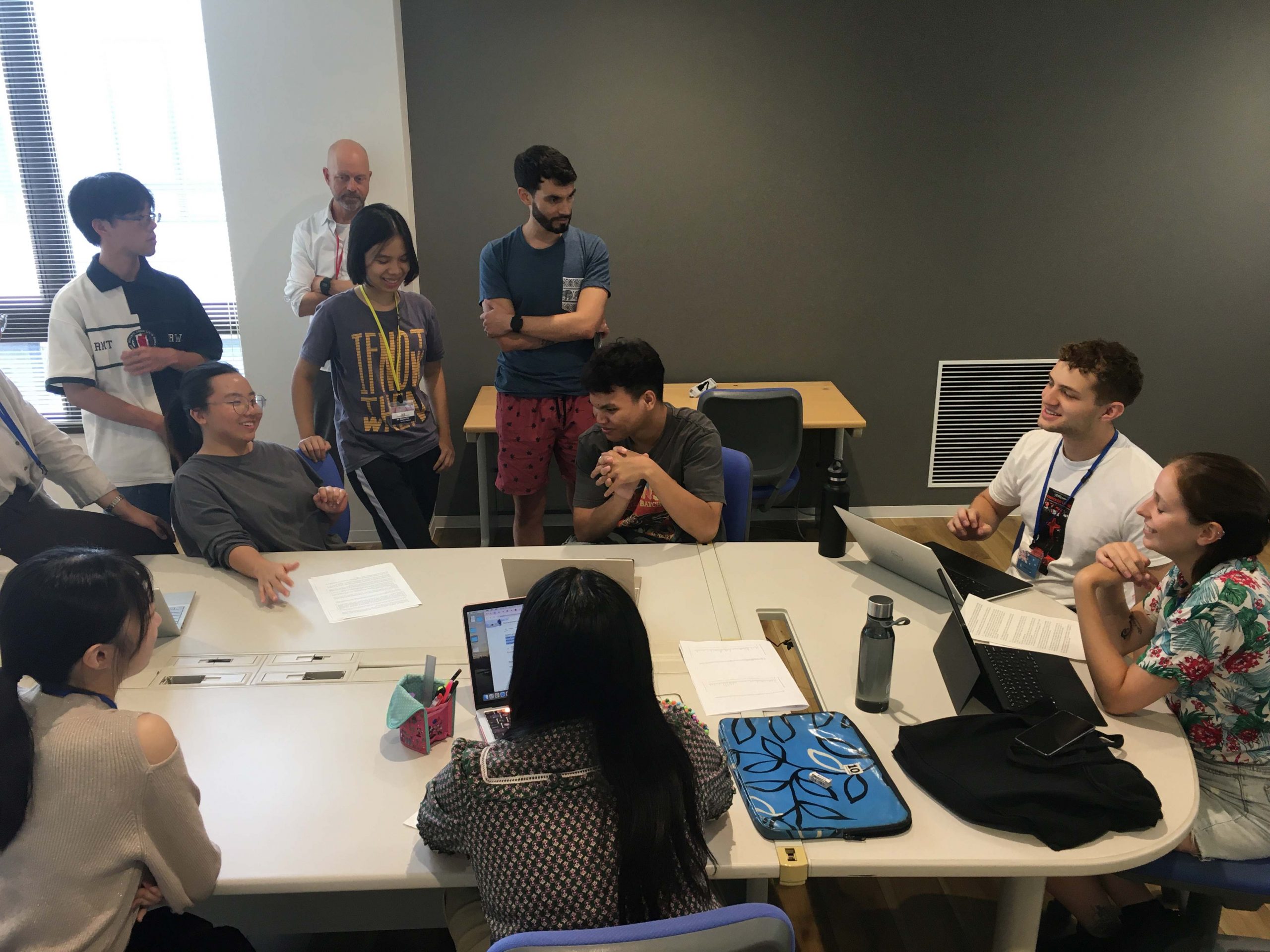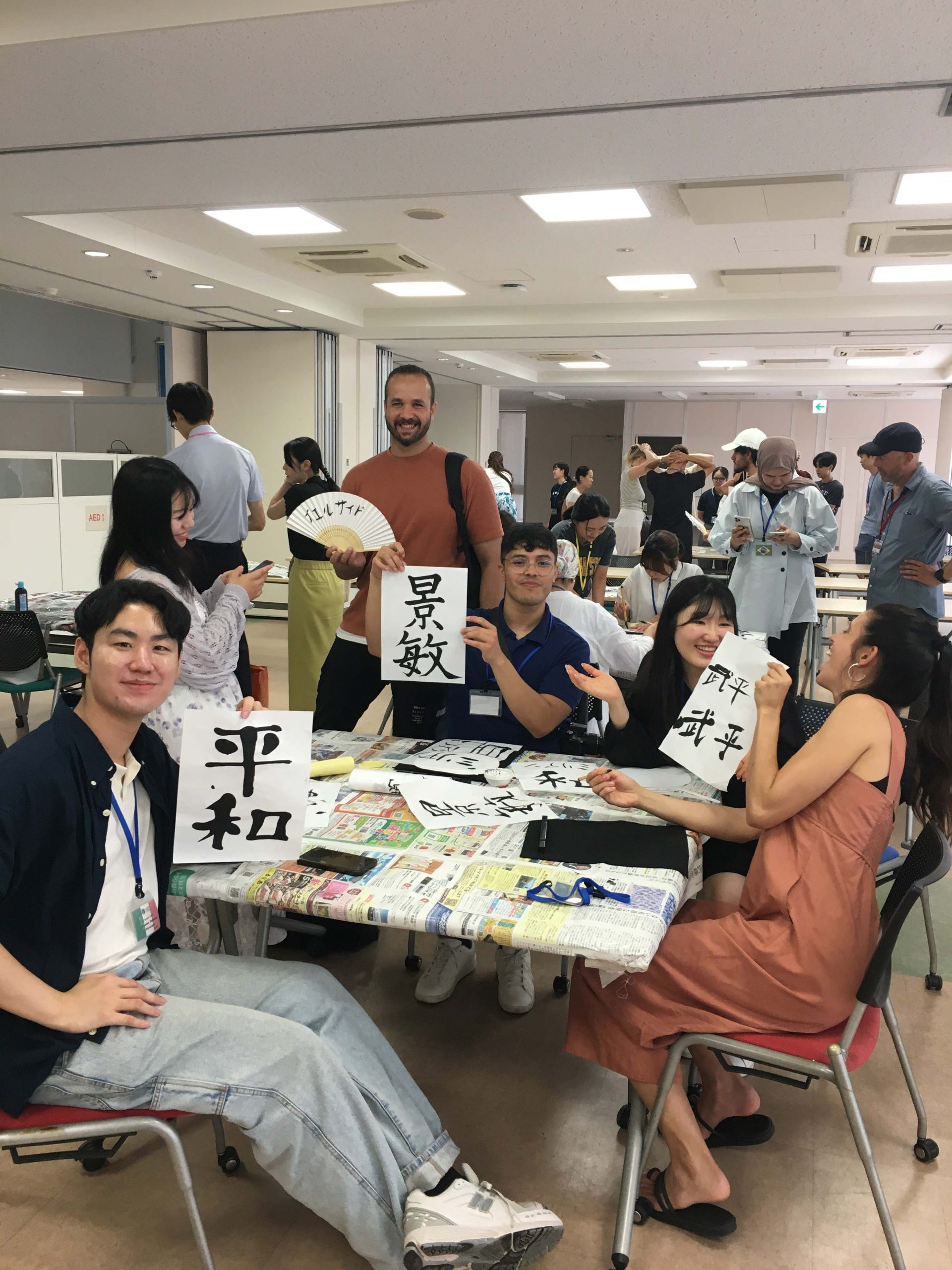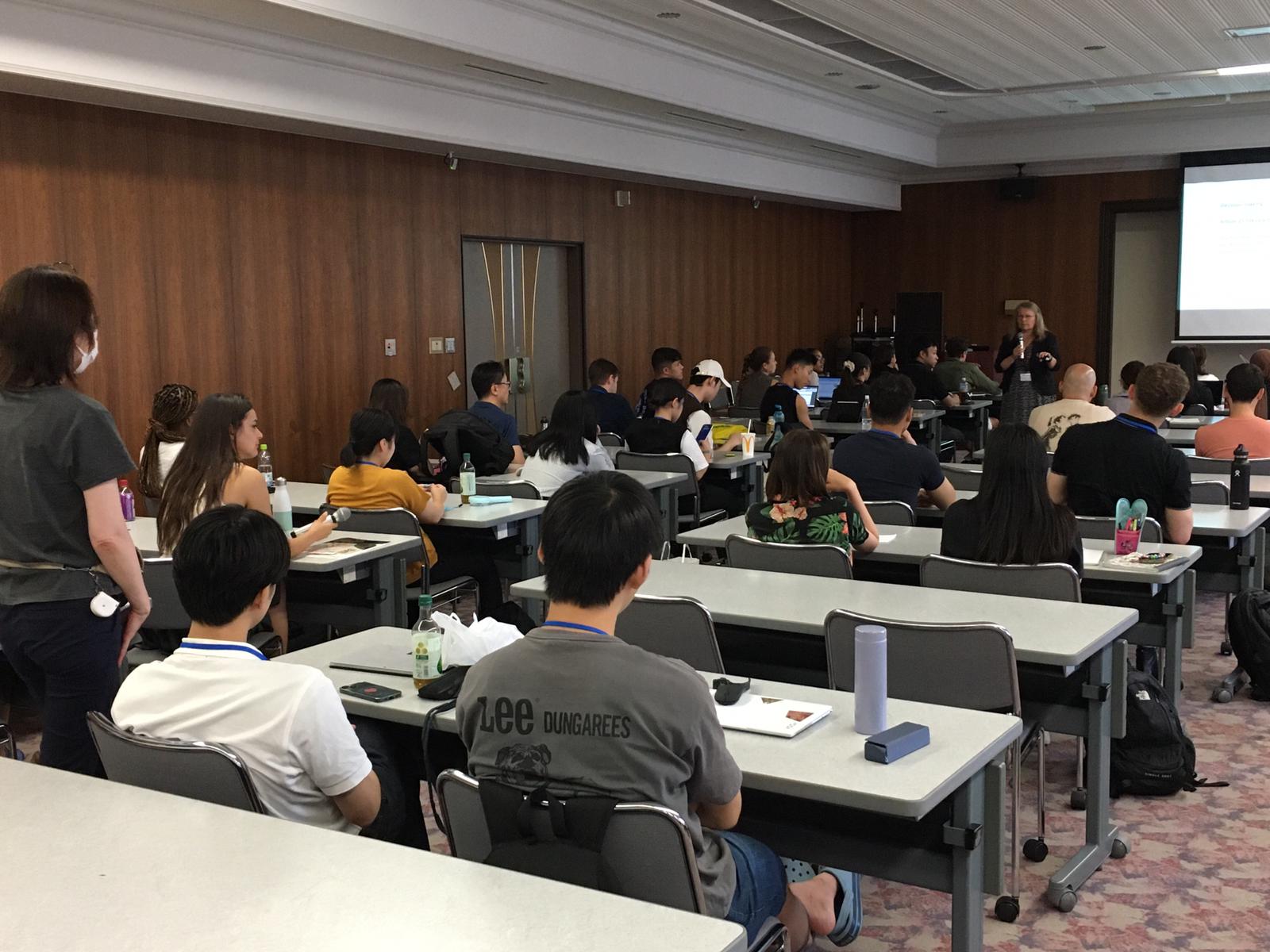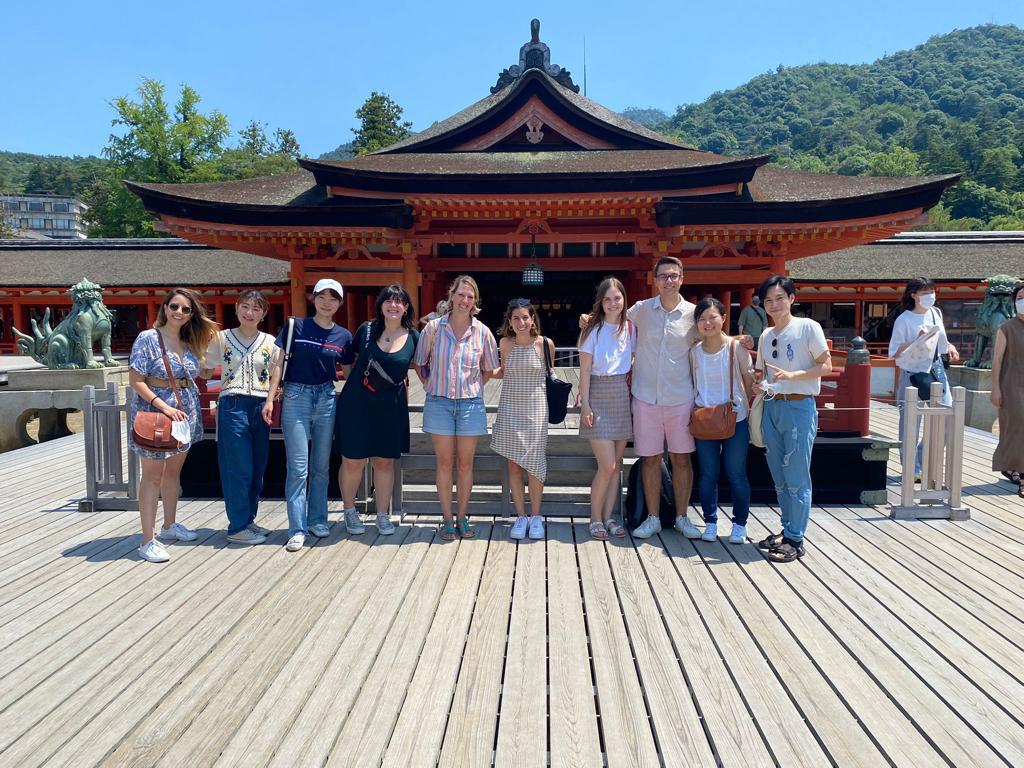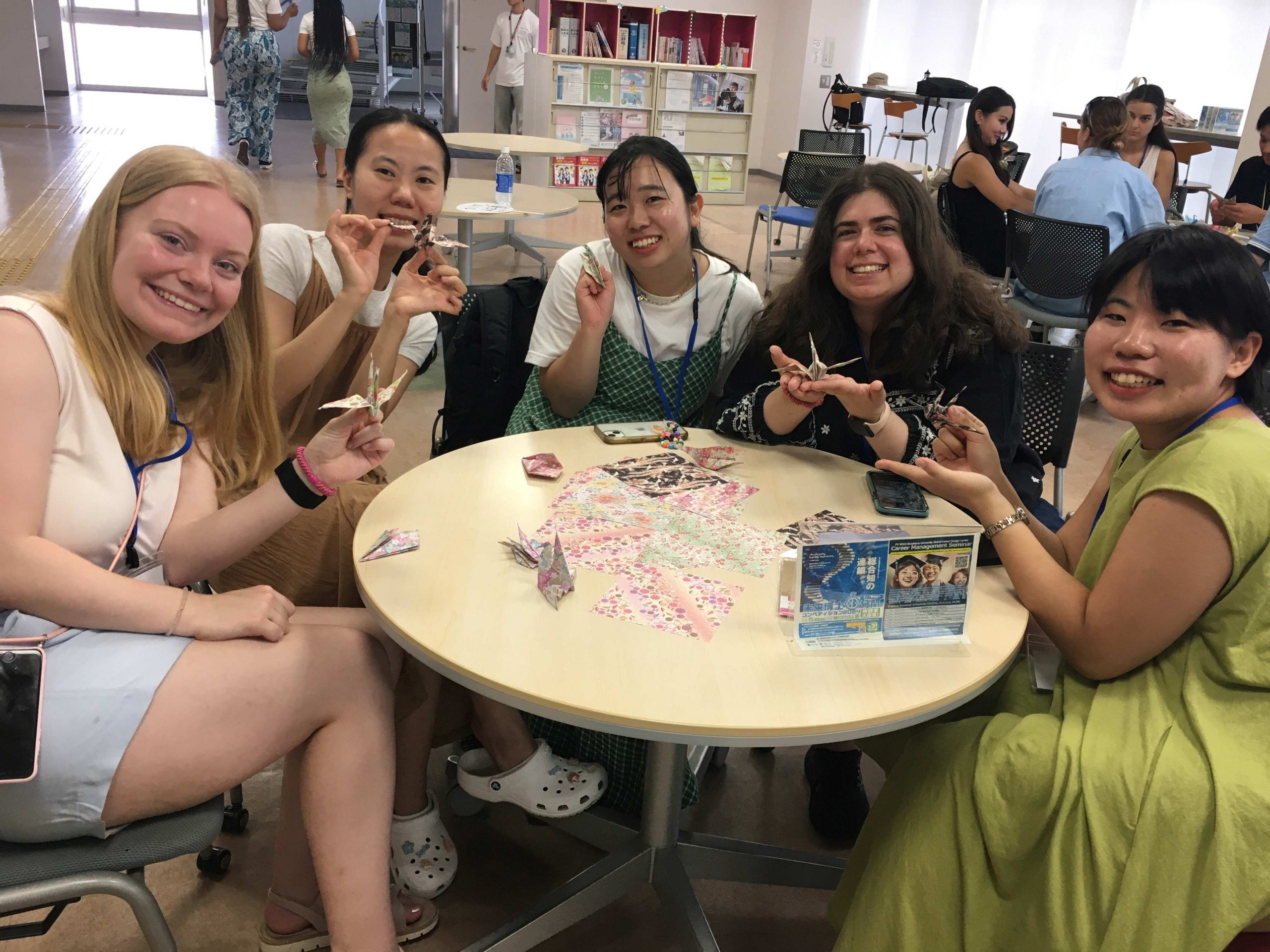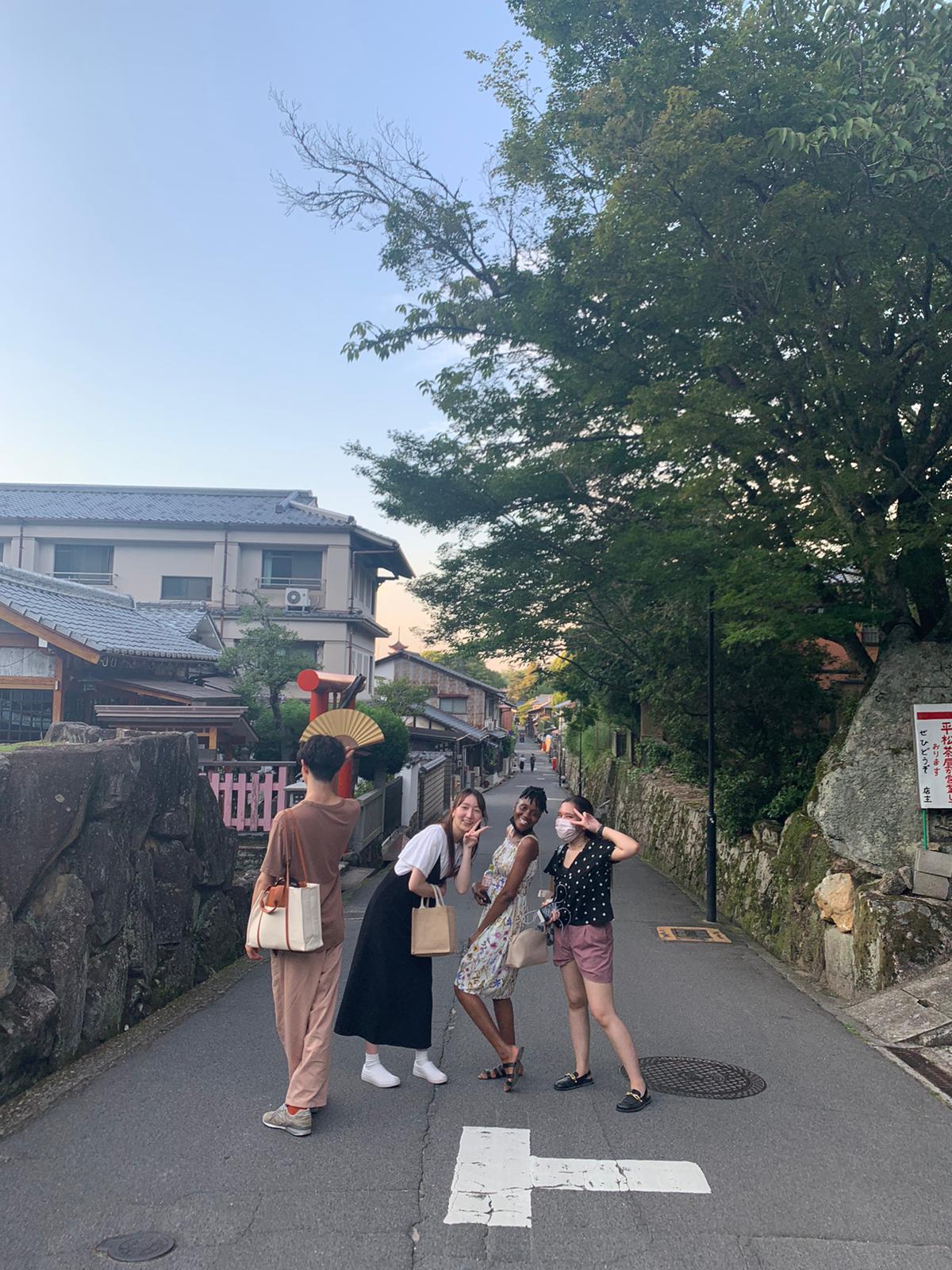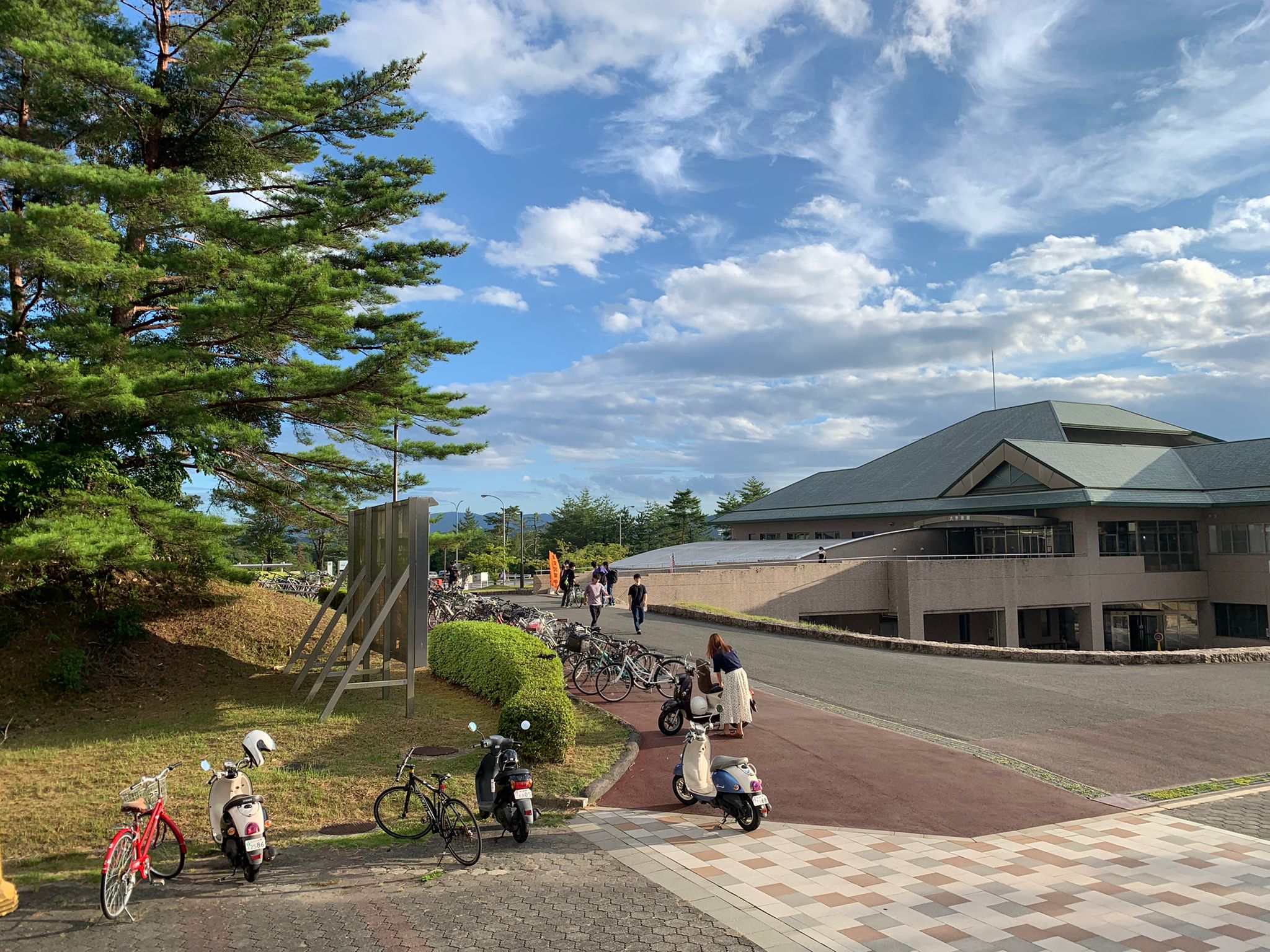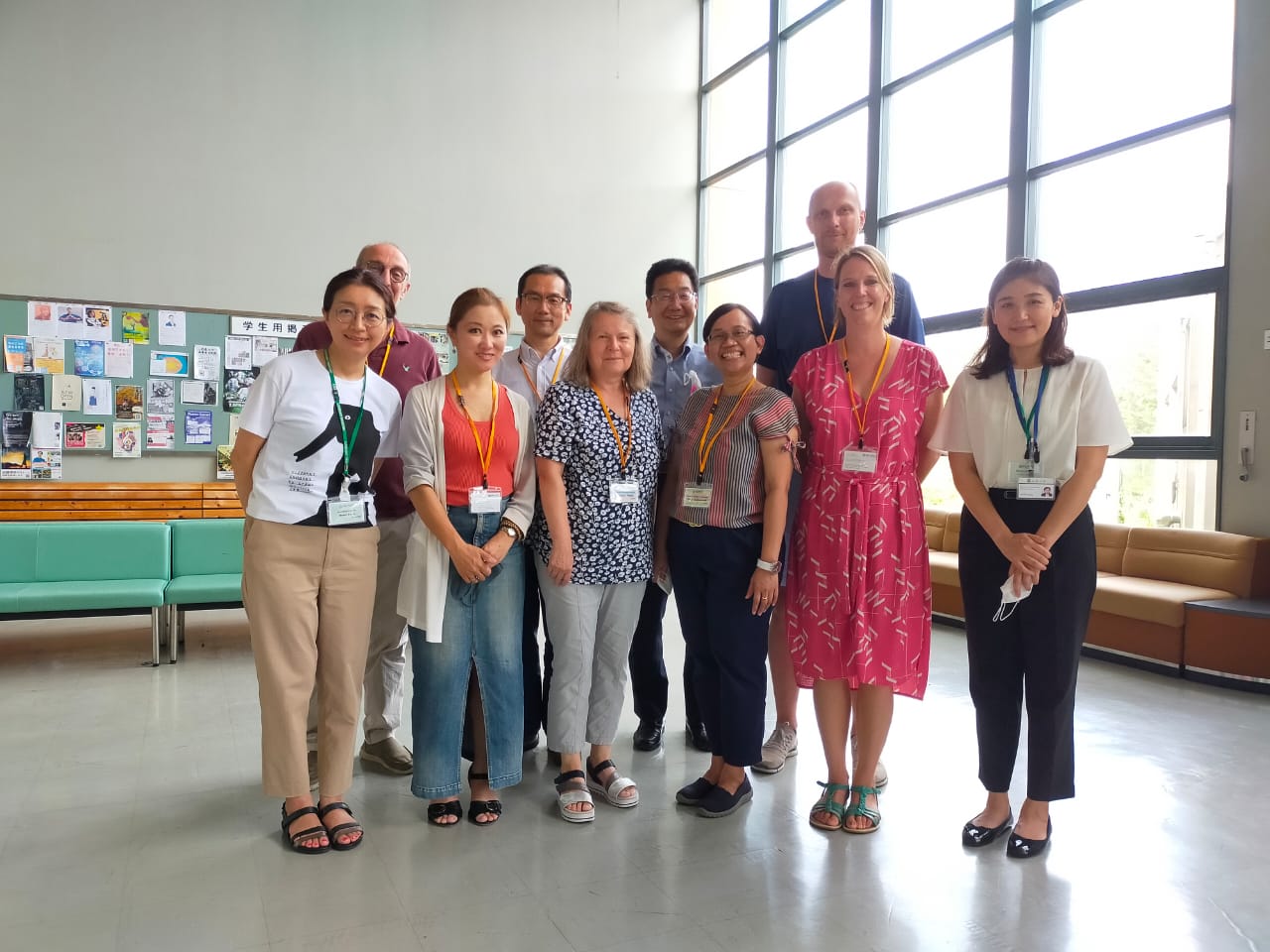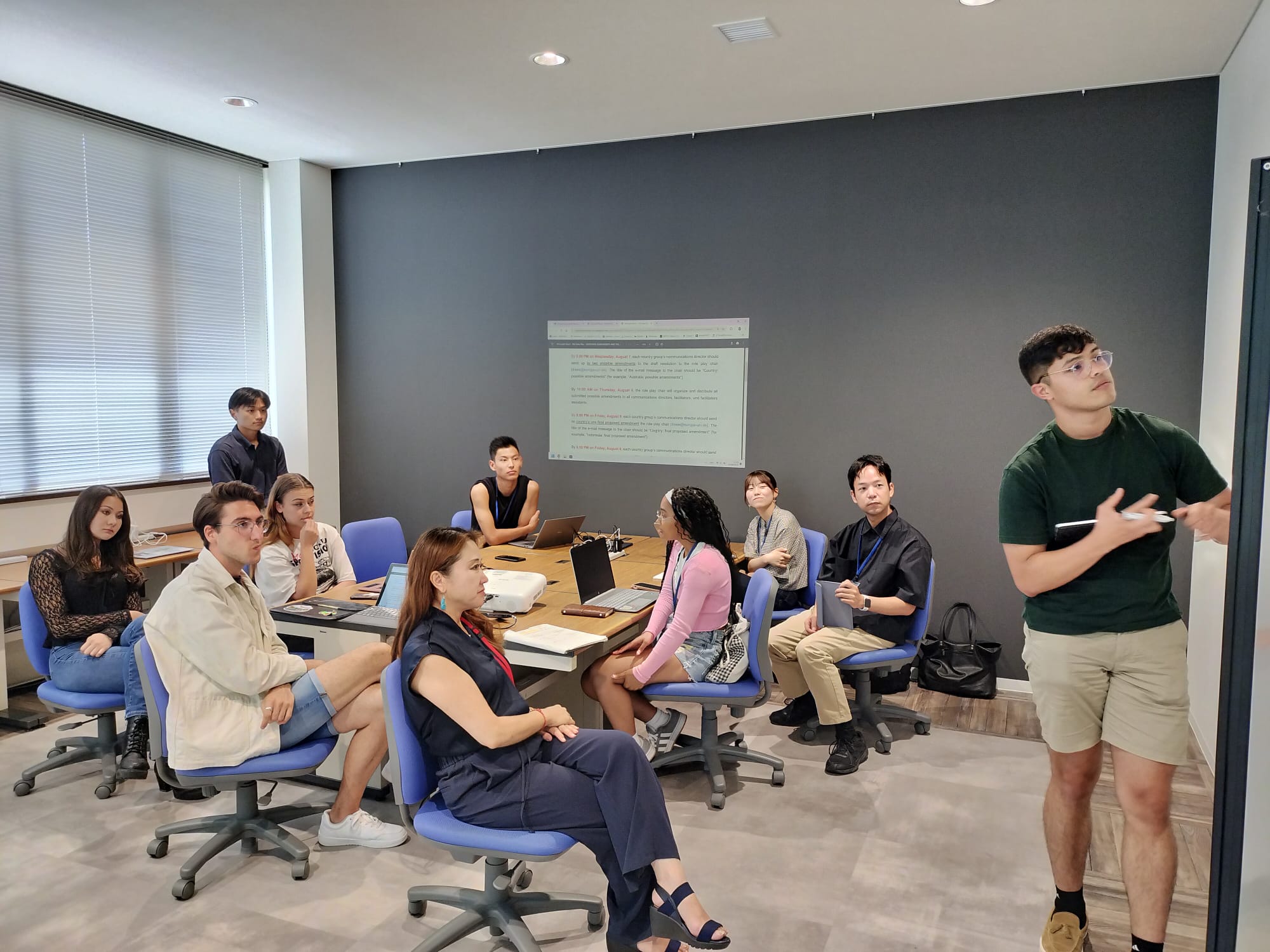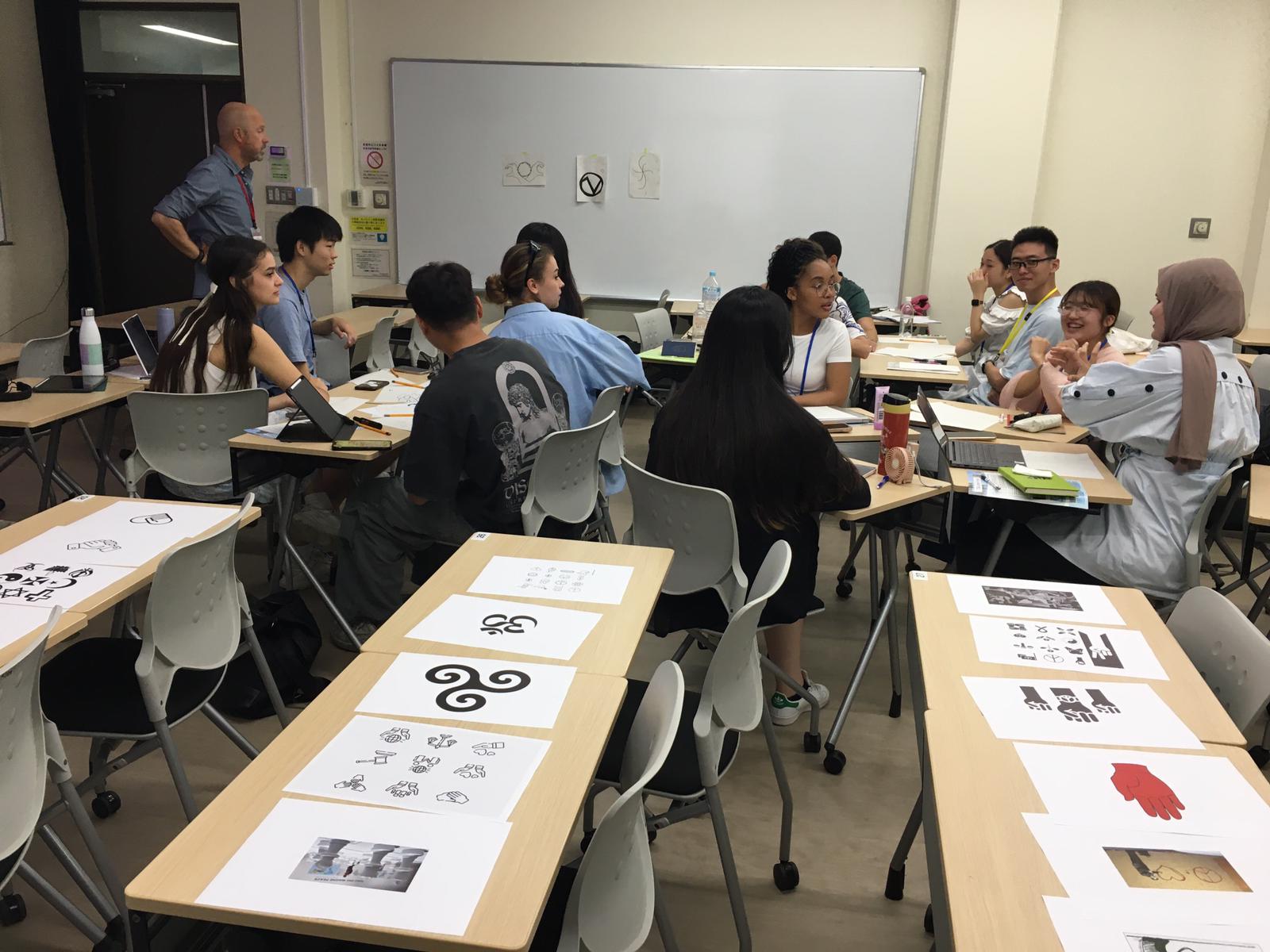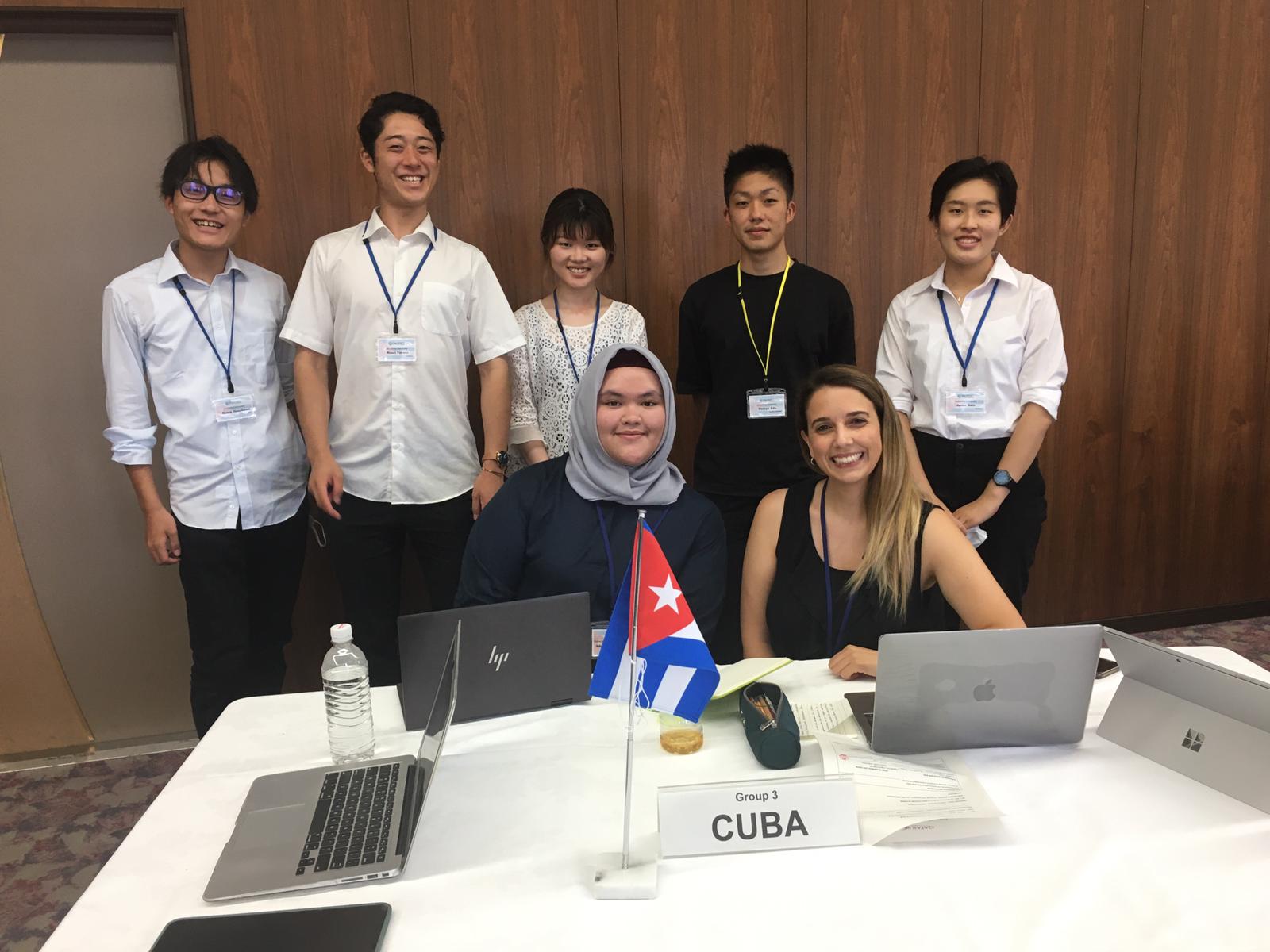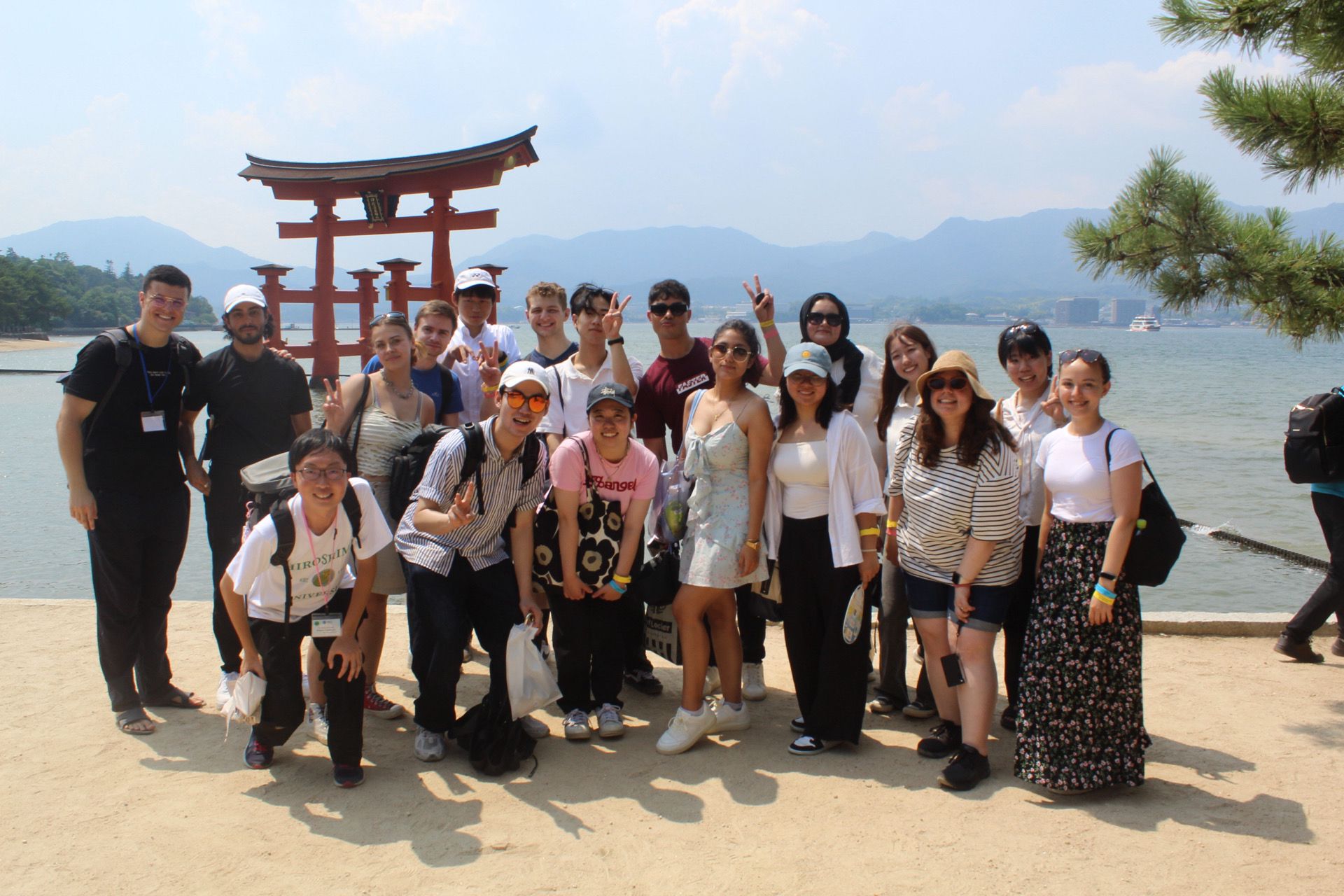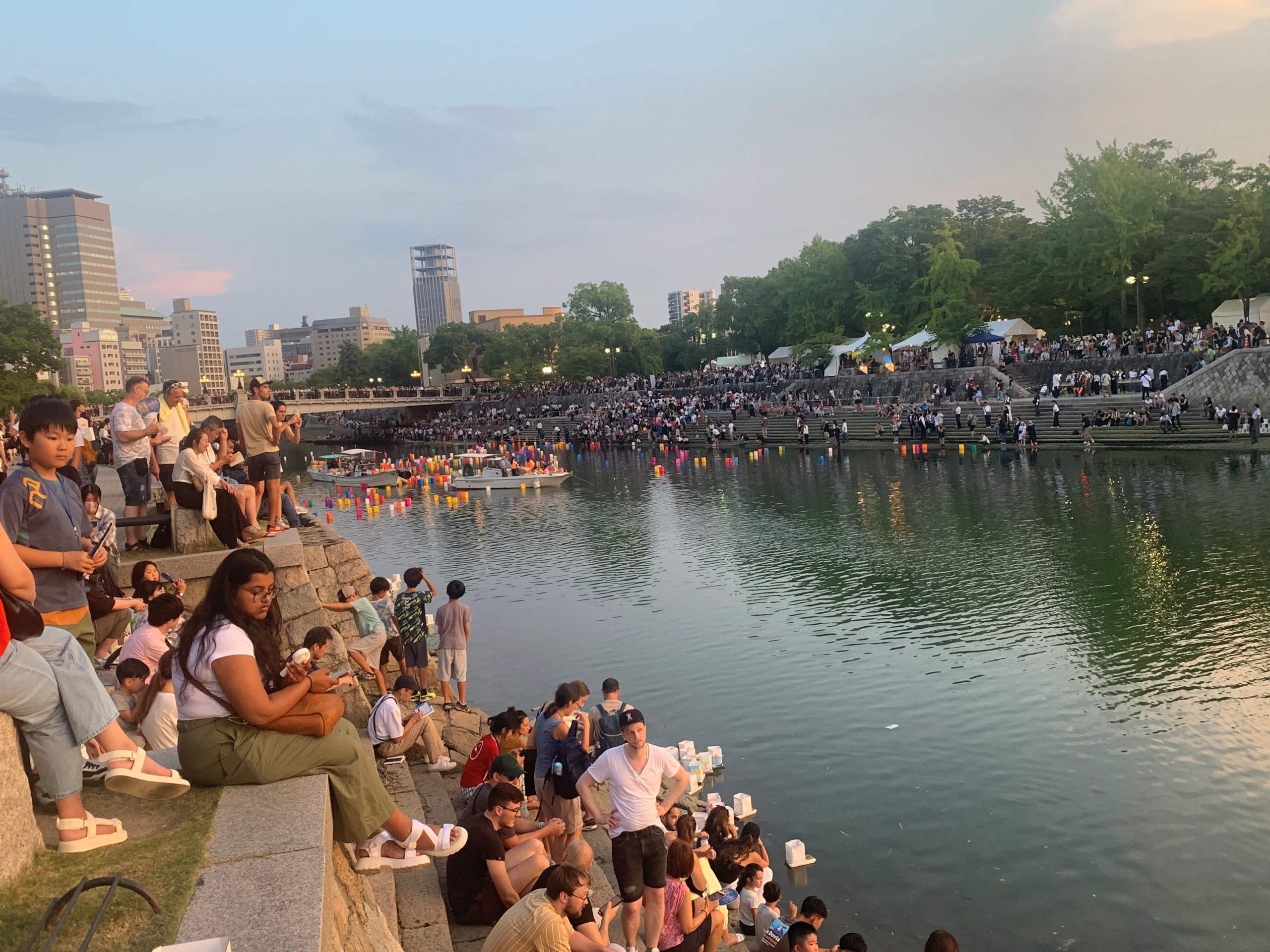Student Seminar for Global Citizenship and Peace
International Student Seminar for Global Citizenship & Peace 2025
1 -10 August 2025, hosted by Hiroshima University
Program Overview
The International Student Seminar for Global Citizenship and Peace is a unique immersion program which is hosted by Hiroshima University in Japan. Since 2006, the seminar welcomes students from around the world from INU member universities and is structured around the August 6 commemoration of the atomic bombing of Hiroshima.
The seminar prepares an international group of approx 60 students to live and learn as engaged global citizens. The Student Seminar provides students with a working knowledge of global citizenship and peace with a focus on cross-disciplinary problem, solving of real-world political, economic, social, and cultural problems. Workshops are delivered by Faculty from across INU member universities, with expertise across a range of disciplines relating to the theme.
The 10-day program includes lectures, case studies and small group discussions. The program also offers field trips to local attractions and cultural learning experiences, and culminates in a United Nations role play where groups of students represent different countries, and negotiate to pass a draft resolution.
The theme of the seminar
Each year, the INU Student Seminar addresses a different theme. In 2025, the theme of the seminar is on Nuclear Disarmament and Non-Proliferation.
Seminar theme 2025: Nuclear Disarmament and Non-Proliferation
The year 2025 will mark the 80th anniversary of the atomic bombings of Hiroshima and Nagasaki. These bombings killed hundreds of thousands of people, most of whom were civilians, and remain the only use of nuclear weapons in an armed conflict. The long-term consequences of their use are catastrophic for humans and nature. Therefore, their use should be banned.
In response to growing international concern toward nuclear weapons the International Atomic Energy Agency (IAEA) was created in 1957 as an autonomous organization within the United Nations system. The IAEA serves as an intergovernmental forum for scientific and technical cooperation on the peaceful use of nuclear technology and nuclear power worldwide.
To ban nuclear weapons the international community has agreed on international treaties, especially the Treaty on the Non-Proliferation of Nuclear Weapons (NPT) of 1970 and the Treaty on the Prohibition of Nuclear Weapons (TPNW) of 2021. Whereby the Treaty on the Non-Proliferation of Nuclear Weapons seeks to prevent the spread of nuclear weapons, to promote peaceful uses of nuclear energy and to move towards nuclear disarmament, the Treaty on the Prohibition of Nuclear Weapons aims to their total elimination. But not all states are legally bound by these treaties.
Complex global and regional geopolitics make it more challenging to achieve peace in the world. Ongoing conflicts require that states communicate and coordinate to promote a common understanding that nuclear disarmament is necessary for global peace. It is above all the responsibility of the nuclear powers to disarm and avoid the proliferation and use of nuclear weapons worldwide.
The seminar will consider the role of international organisations, especially the United Nations, in the field of nuclear disarmament and non-proliferation and examine how effective and influential international organisations can be in achieving this purpose.
The aims of this year’s seminar are to explore the causes, effects and consequences of the proliferation of nuclear technology on various areas and to discuss the peaceful use of nuclear technology and power as the only form of use that should be allowed.
You can view the full list of past International Student Seminar themes since the seminar first started in 2006 here.
Eligibility
Full-time students from INU member institutions who are willing to be challenged by an intensive academic and cultural program.
Each INU member universities will invite their students to apply to participate, usually in February-April. Please do contact the International Office / Centre for Global Engagement / Study Abroad Office at your University to express your interest in participating, or contact the INU Coordinator for further information: inu@kingston.ac.uk
Who should apply?
The student seminar is designed for highly motivated students who are interested in:
- Increasing their understanding of political, economic, social and cultural challenges emerging in an increasingly globalized world
- Understanding the notion of global citizenship and considering their potential as global citizens
- Deepening their appreciation of the challenges and payoffs of cross-cultural and international engagement
- Sharing reflections with students, academics, and other seminar participants.
Application and Selection Process
Each INU member institution determines the application and selection process for students at their university. For more information, contact the International Office / Global Engagement Office / Study Abroad Office at your home institution, or contact the INU Coordinator.
Practical Information
Students and staff will stay in the same hotel, close to the seminar venue at Higashi Hiroshima campus. The hotel is booked for students by Hiroshima University, however the cost of the stay is to be covered by the student/staff themselves.
The program schedule, accommodation information and reading lists will be provided to selected students in advance of the seminar.
To enable full participation in the program, students are asked to arrive in Hiroshima on Thursday 31st July 2025 and to depart Hiroshima on Monday 11th August 2025.
Draft Schedule*
| Date | Activity |
| Friday 1st August | Arrive Hiroshima |
| Saturday 2nd August | Start of Seminar – Welcome and introductions /Japanese language and cultures session |
| Sunday 3rd August | UN Plenary Lecture / Intercultural Session /Keynote talk |
| Monday 4th August | Survivor of the Atomic Bombing Talk / Peace Museum / Workshop 1 / Group Work |
| Tuesday 5th August | Workshop 2 /Group Work / Japanese Culture |
| Wednesday 6th August | Peace events / free afternoon in Hiroshima City |
| Thursday 7th August | Workshop 3 / group work |
| Friday 8th August | Free Day for Miyajima/excursion |
| Saturday 9th August | Workshop 4 / group work |
| Sunday 10th August | UN General Assembly role play |
| Monday 11th August | Return home |
*Please note this schedule is to provide an indication of activities and is subject to change.
Questions?
Please do contact the INU Coordinator: inu@kingston.ac.uk
The INU Student Seminar features:
- Lectures and workshops with academic experts and guest speakers from around the world;
- Interactive seminars that encourage stimulating discussion and learning;
- A role-play of a special session of the United Nations General Assembly;
- A truly international student body
Highlights
“This was my first UN Role Play experience, and it gave me a greater understanding of gobal issues, especially when focusing on food and water insecurity”
“An incredible experience to have been able to share, learn and exchange with fellow students and teachers from all over the world and with different background”
